|
|

"The WORD Makes KNOWN GOD"
This Sunday and Beyond - December 31, 2017
“In the beginning was the Word, and the Word was with God, and the Word was God.”
These are the first words of the Gospel of John, and so very familiar, especially in the memorable manner the three phrases were written. Beyond their familiarity, however, the question can be asked, “To whom or regarding what is the short phrase 'the Word' referring?” And what can this mean for me? The basic two choices for reference are the Word of God referring to the Son of God, who was born into this world given the name Jesus, and Emmanuel (God-with-us), and the other choice is referring to the Holy Scriptures, or more commonly as, the Bible, both the Old Testament and the New Testament. So how do we know the difference here in John's Gospel, chapter 1, verse 1?
The most basic answer to such a question can be heard in two phrases from throughout the history of Christianity and then reiterated forcefully in the Anglican tradition's struggle through the Reformation influences. They would be these: the “plain sense reading” of the Scriptures, and “allowing scripture to define scripture. “ There’s more to say about these phrases. For now, though, it’s going to be fairly easy. For instance, in St. Paul's letter to the Ephesians, when encouraging the saints to put on the armor of God in chapter 6, he includes “taking [up] the sword of the Spirit, which is the word of God.” The plain sense reading tells us that this is a tool for spiritual battle, not a reference to a Person. And then, looking further in the letter in order to let scripture define scripture, we read in chapter 5 that Paul had written , “1 Therefore be imitators of God, as beloved children, 2 and live in love, as Christ loved us and gave himself up for us, a fragrant offering and sacrifice to God. “ And then after talking about what is not the right way to live in Christ he says “6 Let no one deceive you with empty words, for because of these things the wrath of God comes on those who are disobedient. 7 Therefore do not be associated with them. 8 For once you were darkness, but now in the Lord you are light. Live as children of light— 9 for the fruit of the light is found in all that is good and right and true. 10 Try to find out what is pleasing to the Lord. 11 Take no part in the unfruitful works of darkness, but instead expose them. “ For Paul, then the word of God in this context is about the scriptures themselves, or God's words by Holy Spirit inspiration.
Is that the meaning in John 1? Well, if we use the same method of bible reading and bible research, all we have to do is keep reading and we hear this, “All things came into being through him.” Not through “it,” but through “him.” And this “him” is also God. Several verses later to get to the Apostle John's gospel point is that this Word, this living Person in God becomes born in the flesh. So we can be assured that John is not talking about the Bible here as the word of God, but referring to Jesus Christ as the Word of God. As difficult as THAT might be to comprehend, even by Faith, we press on to discovering why Jesus, the Son of God, is given this name as the Word. John says it is because this Word is how God the Father has chosen to make himself known. We can see it in Genesis chapter 1, as God Almighty used his Word to let himself be known in creation, “And God said, “Let there be.....” And now we hear John saying this through the amazing act of the enfleshment or incarnation, the birth through the death and resurrection of Jesus Christ, the Word of God, “ It is God the only Son, who is close to the Father's heart, who has made him known. “ The Word of God.
And now, finally, is this for your reflection: If you believe you are worshiping and understanding God by marveling and experiencing His creation, then you are correct. He made it. You are in it. In fact, He has made you. However, the adoration and worship of God in creation is only here and now. It is not enough by itself. Your hope for your soul for eternity is only safe as you place your faith in the One THROUGH whom all things were made, and who has made God known, that is the Word of God. Jesus the Messiah, the Christ. Very clear. Believe in Him and you will live in the Light.
Father Robert Eaton, Interim Rector
|
RETURN TO TOP
See The Sign On Your Journey
This Sunday and Beyond - December 17, 2017
Get it in PDF form with calendar
In a parish such as All Saints, during the worship, while the priest is at the altar, or as some might call it “The Lord’s Table”, there are a few moments when it seems like the priest is saying something under his breath. In fact, these moments ARE under his breath as his own private devotions associated with that moment in worship. One of those moments comes after “setting the table” with wine and bread for the Holy Communion prayer. By the way, we call that prayer The Great Thanksgiving, or The Eucharistic Prayer. Eucharist is simply a greek word for thanksgiving, like Nike is a greek word for victory.
After setting the table with bread being passed to the priest, and then pouring wine and water into the cup from which we drink for Communion, it seems exactly the right thing to wash your hands. Just like if you are in the kitchen preparing a meal, you would wash your hands before getting ready to say “The Grace”, serve the food.
In this case, the washing of the priest’s hands takes place before saying the prayer over the bread and wine which will provide the means for the bread and wine to become the Body and Blood of Jesus Christ. As you can see, it is a holy moment. During this washing, the priest says a prayer of devotion and dedication to the work he will do on behalf of all those gathered. In the tradition in which All Saints has worshipped for so many years, we call these prayers of devotion and dedication the “secret” prayers of the priest.
I’ll share one of them with you (they are not so secret that no one can know what is being said, but they are secret in the sense they are said so quietly by the priest for the priest).
When I’m washing my hands after setting the altar, I pray, “Lord, I wash my hands as a sign that I am no greater and no less than any of those gathered here today in worship and ministry. With joy and awe, I humbly accept this calling to the altar, as a servant of your redeeming; and I ask that you would increase, and I would decrease.”
There is a more familiar prayer in the Anglo-Catholic tradition that prays essentially the same. But I was moved strongly at one moment in my life after hearing the words of John the baptizer who proclaimed his own humility, and his joy, in pointing to Jesus rather than to himself, and so I made it into by prayer of preparation for ministry at the Lord’s table. It’s in the Gospel reading for this Sunday, when in response to the jealous protection by his own disciples about Jesus becoming more visible than their master John, John said about himself, “The friend of the bridegroom, who stands and hears him, rejoices greatly at the bridegroom's voice. For this reason my joy has been fulfilled. He must increase, but I must decrease."
Is your life, in preparation for the coming of Jesus, more about Jesus than it is about you? Pray this prayer with me, regularly, and look for God’s glory to be seen and known through you.
Readings for this Sunday – Third Sunday of Advent
Isaiah 65:17-25 , Psalm 126 , 1 Thessalonians 5:12-28 , John 3:23-30
Father Robert Eaton, Interim Rector
|
RETURN TO TOP
See The Sign On Your Journey
This Sunday and Beyond - December 10, 2017
Get it in PDF form with calendar
You may have heard of the prophet who suddenly “appeared” and began to announce that the Messiah of Israel was coming. It is, of course, appropriate, during this season of Advent to bring to our attention in our worship and study about what is coming. That is the essence of the 4 week Advent season: the coming of Jesus, who is the Messiah. The first Sunday of Advent we heard about the second time he comes; an exciting and dramatic announcement and time. And then there is the announcement of the prophets from hundreds of years before that the Messiah would be coming, born to a Jewish maiden. Here’s a section from Sunday’s Gospel that makes the general announcement from that earlier prophet, Isaiah:
‘As it is written in the prophet Isaiah,
“See, I am sending my messenger ahead of you,
who will prepare your way;
the voice of one crying out in the wilderness:
‘Prepare the way of the Lord,
make his paths straight,’”’
That messenger, that prophet, is also proclaimed in this week’s Gospel. That prophet out in the wilderness, John the baptizer, announces that the Messiah is coming immediately to begin his public ministry.
That’s quite a bit of announcing of the coming of the Messiah. Part of that point, I believe, from God’s concern is that it – the Messiah’s coming – is not overlooked or missed. Or ignored.
So here’s what the next couple of lines says,
“John the baptizer appeared in the wilderness, proclaiming a baptism of repentance for the forgiveness of sins. And people from the whole Judean countryside and all the people of Jerusalem were going out to him, and were baptized by him in the river Jordan, confessing their sins.”
How is it that someone would suddenly appear and should actually be seen and heard, and by so many?! I have spent a lot of time driving back and forth through the desert area through Mojave. Mostly it’s wilderness, as far as the eye can see, except for an occasional “For Sale” sign proclaiming 60 acres, or so, available. I’ve never seen anybody, much less a crowd of people, standing around those signs.
There’s actually an interesting similarity. I only saw those signs because of a major – if lonely – highway upon which I was traveling. And hundreds and thousands of cars those same days. It was a lot further between destinations for me, but the “wilderness” area described in the Gospel was the wilderness of Judea, and according to the Gospel more specifically that wilderness adjacent to the River Jordan. That means basically the area between Jerusalem and Jericho. It was a through rough, wilderness area. Check out www.harmony.bible for topographic maps and videos, and you will see. The further similarity, though, was it was well travelled. The similarity stops there since it was not the distance I would drive, but considerably shorter, like only 30 miles. Still, it could take the same time to walk the 30 as for me to drive the longer. And that meant people talking, and passing, and sharing, and being pointed to. As a result, it would not take long before word got out, and John the baptizer’s message and proclamation being heard, and people agreeing to repent, and get into the water.
John’s message about Jesus coming was both hard to hear, but mixed with Good News.
‘A voice says, “Cry out!”
And I said, “What shall I cry?”
say to the cities of Judah,
“Here is your God!”’
That’s pretty scary. But it is two-fold. Because three years later on the cross, Jesus the Messiah exchanged His perfect righteousness for our sin and paid in full the penalty for that sin. Our work is to do what so many of the crowds before John did. Agree and be baptized. You will discover the Good Shepherd who will carry His sheep to His bosom for ever.
That wilderness “for sale” sign has your name on it. Don’t miss it on your life journey.
Father Robert Eaton, Interim Rector
|
RETURN TO TOP
"Take Heed, Watch, and Pray"
This Sunday and Beyond - December 3, 2017
Get it in PDF form with calendar
"I don't know, But the Father knows.” That is Jesus’ answer to his disciples’ to the question of when everything is going to end as they knew it.
It started this way: they had been in the temple in Jerusalem, and one of his disciples had marveled at the glorious construction of it, and of the out buildings. Jesus’ immediate comment was a lot of cold water on such appreciation when he said that everything beautiful they looked at was going to be destroyed.
Imagine coming into our parish church, perhaps one of our acolytes giving a little tour, pointing out our windows, the blue dome on top of the Spanish renaissance tower, the Mary chapel, some of the history. And during the tour you express yourself (like I did when our All Saints’ Acolyte Director took me on a small tour) – “Oh, yes.” “Nice.” “Beautiful.” “Amazing.” And then if your tour guide said to you, “Do you see all these lovely things? There will not be left here one plastered beam beside another, that will not be thrown down!”
If you were a newcomer, you might want to have some other churches to visit. You might think major construction was planned, or a complete property moved. Perhaps knowing something of the circumstances it would help your decision about choosing this place for a spiritual home, or going elsewhere. So, you might want to ask, with some urgency, the next question, “Why?” Or, “When?” The disciples wanted to know, too. But they waited until they had gotten out of the city. Mark 13:3 “And as He sat on the Mount of Olives opposite the temple, Peter and James and John and Andrew asked him privately, “Tell us, when will this be, and what will be the sign when these things are all to be accomplished?”
But before Jesus gets to the point of saying that famous answer, vs 32 “But of that day or that hour no one knows, not even the angels in heaven, nor the Son, but only the Father”, he has a longer answer to provide. It’s the answer of what happens IN BETWEEN that moment when “they will see the Son of man coming in clouds with great power and glory,” and right NOW, as you have now heard Jesus Himself say
that He is coming again. It’s the answer of what do you do now that you have given your allegiance, your heart, your soul, your strength, your mind to Christ! Do you run? Do you stay and hide?
Part of the Good News is that Jesus’ answer let us know that someone is in control, God the Father, and that it is a planned demolition and creation (the new Jerusalem) – like our lives being transformed in Christ once we believe, yes?
And his extended answer he summarized in this way, “Take heed, watch and pray.” He’s not just talking to Peter, James and John, and Andrew. For he says to them as his final words in this answer, “And what I say to you I say to all: Watch.” And so we are included in Jesus’ command.
Here’s what we know: it’s going to happen. We are to be prepared by being watchful. We are to pray. And for what? For the harvest of souls to join you as the elect who will be gathered.
So don’t get caught up in worrying about what will be coming, except to be prepared. Do now what you have been called to do now.
Father Robert Eaton, Interim Rector
|
RETURN TO TOP
"The Meaning of Christ as King"
This Sunday and Beyond - November 26, 2017
Get it in PDF form with calendar
In response to the rising dictatorships of the first quarter of the 20th century, Pope Pius instituted by Encyclical, the celebration of “Our Lord Jesus Christ the King.”, as an October feast day. In 1969 Pope Paul VI expanded the name, and then moved it to the last Sunday of what the Romans call the Ordinary season, and what Anglicans have referred to as the Sundays after Trinity, or with the 1979 Prayer Book, the Sunday after Pentecost. One way or the other it is the last Sunday of that “season” and thus, always, the Sunday before the beginning of Advent. Although the Anglo-Catholic community picked it up much earlier, the change to the Sunday before Advent in 1970 fit right in with the development of the change in BCP lectionary for the 1979 book. It took on the name that was already the shorthand name, The Feast of Christ the King. And that made the feast and theme available to the entire Church. As a feast celebrating Christ Himself, the color of the day is White or Gold.
Pope Pius’ intentions were that the Sunday become a reminder that there is no true ruler but Christ, and thus he hoped that the celebration with scripture readings and sermons given might help to combat the growing influence of absolute dictators in the secular world. Although we could say that that was a time and season, from before WWI through the end of WWII, and a more modern understanding for the celebration would be more helpful (such as the humility of Jesus the King by His incarnation), I don’t see much evaporation in the various risings (and fallings) of dictators, despots, caesars, pharaohs, tyrants, tyrannizers, etc. We’re not talking here about somebody in elected office with whom you simply disagree for whatever reasons. We’re talking “leaders” who have taken to themselves a fierce stranglehold on a country, a nation, a people, forcing its people into poverty and and keeping them in ignorance. And I do not withhold such description from leaders of the Body of Christ from time to time, tragically.
What then does it mean to proclaim and praise Jesus Christ as King? For this year’s Gospel reading (there are 5 different Gospel depictions of Christ as King that are available for use), we hear Jesus talking about Himself as the Son of Man when He sits on the throne of glory on judgement day. But not just about Himself alone. All the things we want JESUS to be doing as King He uses as a measuring rod for His SUBJECTS. Well, then, THAT’s a turn of events! And then comes repentance. It comes as we suddenly realize that this King wants His subjects to
reflect His Kingship in their own actions. That is, this King Jesus came to give the water and food of salvation to all who were hungry, AND he managed to provide literal water and food, sometimes miraculously, to those who were literally thirsty and hungry. He asks the same of us as His servants and subjects, and warns us that His judgment will be, if you will, a test on all that has already been presented.
There are two things, two sides of the same coin, two sharp edges to the sword that must not be overlooked: we are responsible to provide literal provision when we see it, literal visitation to those apart from us, literal welcome. AND we are to – both by word and deed - proclaim, point to, teach, pray for being drawn into, the Kingship of Christ for all those to whom we are otherwise ministering. Jesus the Messiah did not shy away from both; none of His saints shied away; none of us should ever be shy to point to the real King of all the Universe, the kings down here not withstanding.
More than simply “be prepared” for the coming of the Lord, this Gospel points to the existential: Be Prepared to Minister to Needs, both physical and of the spirit and soul. That is, be prepared at all times to share your resources and to share your Faith in Christ who is King of All. As you satisfy someone’s parched body, may you also bring satisfaction to parched souls and spirits, so that they too may stand before the King to be ushered into eternal life.
What testimony do you have already?
Father Robert Eaton, Interim Rector
|
RETURN TO TOP
"The Stewardship of Your Ministry"
This Sunday and Beyond - November 12, 2017
Get it in PDF form with calendar
If we were to zoom out from Matthew 25's "Parable of the Prepared and Unprepared Bridesmaids" (just think what reaction that title might have in a wedding planner!) we would find first several parables and teachings about the end times. But not just the end times like we might find in the Revelation to John. This is teaching about surety, yes, but mostly about endurance and patience while waiting, and what true disciples of the Lord Jesus are to be doing WHILE being enduring and patient. At this level of zoom out we can see that Jesus is having an end-of-day private time of teaching and interaction with his closest disciples. These are those who have already made their commitments to follow Jesus as the Messiah, and now need a major pep talk in order to face what is coming next, and how they are called to carry on with zeal and attentiveness to the Lord's Mission. As we zoom out once more, we see where they are and what's coming next. This parable, and those around it in this private session, comes two days before THE Passover, and the arrest, and the crucifixion of Jesus. We are reading about Holy Week. No wonder the theme of Jesus' teaching.
Now let us zoom back in to the parable. One way to describe Jesus' impassioned teaching in this parable, with its dramatic close of those unprepared being cast out into the darkness, is in terms of stewardship. Remember that parables are teaching tools for specific lessons. I say that because this parable is not for the purpose of questioning the seeming lack of generosity by the bridesmaid who had oil. This stewardship, rather, is about what we've been given as functions, as jobs, as holy work to do. The generosity here is with God's Holy Spirit providing the opportunity to serve the Lord, complete with "lamps." These disciples had already been given authority to heal, exorcise, raise the dead, preach the Good News; now they would need to continue to be the good stewards of this mission of Jesus to all the world.
Being vigilant for the coming of the Lord in return would mean doing the work they were given to do, and making sure they had what they needed to stay the course. And here is a bit of prophecy in hind sight, as the oil surely represents the infilling they would continue to need after Jesus' ascension. This they would find in the promised Holy Spirit, just eight weeks away on the Feast of Pentecost.
What is the work, the ministry assigned to you by God? And as someone sanctified in baptism, do you seek regularly the infilling of the Holy Spirit for the purpose of consistent, daily, enduring, patient, watchful ministry for the sake of His kingdom, the kingdom of the Bridegroom?
Father Robert Eaton, Guest Priest
|
RETURN TO TOP
"Think of Halloween in the context of All Saints'Day"
This Sunday and Beyond - November 5, 2017
Get it in PDF form with calendar
Halloween has become one of the great American secular festivals -almost on a par with Thanksgiving, which it quickly gives way to. Very few people know that it is associated with the Christian festival of All Saints' Day, let alone that the word, Halloween, translates as All Saints' Eve.
All Hallows is the old English word for All Saints, as witnessed by churches having that dedication. The most famous is All Hallows by the Tower, adjacent to the Tower of London. The word, Halloween, indicates that its origins go back to the English middle ages, from where many of our church customs and traditions come from. I will not go into how Halloween customs evolved -but rather think of it in the context of All Saints' Day.
All Saints' Day is, of course, November 1st. It is immediately followed by All Souls' Day on November 2nd. Episcopalians are familiar with the traditional Requiem Mass celebrated on All Souls Day for all the faithful departed. It is when we submit names of our departed loved ones to be remembered at Mass. The reading of the names is a solemn (if long) moment of intercession in a Eucharist offered especially for the departed in a personal way.
In recent years we have become familiar with the Mexican Day of the Dead associated with All Souls Day. This is when people go to the graves of their loved ones with flowers and candles to remember them. Both Halloween and the Day of the Dead have become significant observances in San Diego. How can we relate them to our church celebrations and do they have anything to teach us?
Firstly, at the heart of all this is the theme of prayer. For when we remember our departed loved ones we are really offering a prayer for them. When we light candles it is an offering of prayer that cannot be expressed in words.
All Saints day is the reverse. We are not just remembering the saints, we are honoring them. And we do not pray for them -for they are in Heaven. No, in this case we ask them to pray for us.
We are blessed to have our church in San Diego dedicated under the patronage of All Saints'. It allows us to truly celebrate this day as our own special feast. The readings and hymns draw us to Heaven where Blessed Mary and all the saints worship at the throne of grace and intercede especially for us. As Scripture says: Our homeland is in Heaven. (Philippians 3:20) And as another scripture says: Here we have no continuing city (Hebrews 13:14), but seek one to come.
I look forward to returning All Saints on Sunday November 5th and celebrating our Patronal Festival with great joy.
Fr. Tony Noble, Rector Emeritus
|
RETURN TO TOP
"A lesson from Jay Leno's mother"
This Sunday and Beyond - October 29, 2017
When Jay Leno was growing up, there was one firm rule in his family that he had to follow. It was to never take the Lord's name in vain. "There is no reason ever to take the Lord's name in vain, ever." she would say.
After Jay was a grown man and became a famous comedian, he and his father were watching a fight between Roberto Duran and Sugar Ray Leonard on television. One of the fighters was hit hard and fell-and in the excitement, Jay took the Lord's name in vain. His mother heard him, walked into the TV room, and BONK-she hit him on the side of his head with a pot. Then she told Jay, "You'll not say that in this house!" Leno was a grown man. His name was a household name, but in his parent's house he was not to violate the third commandment. And it's important to note that his father was in total agreement with his mother.
I don't know about you, but I find that refreshing. Our culture as a whole is becoming cruder and cruder in its language, and using God's name loosely without reverence is part of a trend-even among church people. We ought to give that some thought. Could this be related in any way to the moral deterioration of our society? When God's name becomes simply a way of expressing our anger or frustration or surprise or disgust, what does that say about us?
One day a Pharisee, an expert in the law, tested Jesus with this question: "Teacher, which is the greatest commandment in the Law? "Jesus replied: "Love the Lord your God with all your heart and with all your soul and with all your mind. This is the first and greatest commandment. And the second is like it: Love your neighbor as yourself. All the Law and the prophets hang on these two commandments.
This is the very heart of the Judeo-Christian faith. Love God: love your neighbor. Jesus taught us that all the teachings in the Bible, both the Law and the prophets, hang on these two commandments. We probably do not give the great
commandment enough attention. What does it mean "To love the Lord your God with all your heart and with all your soul and with all your mind'?
Let's check that out….and let me help you do that.
See you in Church this coming Sunday! It's Reformation Sunday and what does that mean?
Always in Christ,
Father Sanders+
|
RETURN TO TOP
"What's in your wallet?"
This Sunday and Beyond - October 22, 2017
Get it in PDF form with calendar
When the Football season rolls near the end it's fairly short season we all take a deep breath and say that heart felt common prayer, "Thank you, Lord." Super Bowl hails the end of another hard fought season and it's time for the question.
How much will it cost this year for just a minute or two of very expensive commercial time to grab our fleeting attention, Five, six or seven million dollars a second ? I might be exaggerating but maybe not. A lot of clever minds have been thinking and planning and trying to reach our inner most psyche to capture our imaginations, money is no object. The more money spent the better the product or so the experts tell us. I say maybe not.
Jesus sure grabs the attention of the Pharisees in answering their devious self-serving question. In other words to paraphrase the credit card ad, "What's in your wallet?"
Americans tend to see in this passage an argument for the separation of church and state imbedded in the First amendment of the US Constitution. That would make NO sense at all in the first-century Mediterranean world of Jesus.
When Jesus asks, "What are the rivals to God in your life today? What personalities, what ideologies. what prejudices, what addictions, what economics, what possessions?" He's asking, "Where do your loyalties lie? "He is asking the Pharisees and us to do a personal inventory and decide who are the Caesars that we attach ourselves to, and do we sometimes give to them what we should give to God?
Getting our priorities straight is what Jesus is pushing us to do in today's Gospel. Give to Caesar what is his. Many of those Caesars of our lives do have real importance and some rightful claim on our time and devotion. But keep them in the proper perspective. Don't
make them our be all and end all, overshadowing faith and family, our health and moral integrity. Don't give to them what rightly belongs to God alone: our confidence, our trust, and our humble service, our surrender, and our most fundamental and ultimate allegiance. What's in your wallet?
Always in Christ,
Father Sanders+
|
RETURN TO TOP
“Do you have the right clothes?”
This Sunday and Beyond - October 15, 2017
Get it in PDF form with calendar
I have some rather obsessive thoughts about what I'm wearing when I go to a party. For whatever reason, it causes me great anxiety that I might arrive to a party or an event and be under dressed. For most of my life I have insisted on erring on the side of being over dressed to ensure that I not arrive at the party under dressed. When I had the glorious opportunity to stand as godfather to my godson I traveled across several states (in the east not as big a trip as it would be here in the west) and arrived at my friend's house. When the morning of the baptismal service arrived, I realized that I had left my dark suit hanging near the door at home. I had hung it by the door to ensure that I would remember it when leaving the house. To my utter horror I had to attend the baptism, and stand in front of the congregation wearing shorts and an overly casual shirt. I was mortified. If I hadn't been the godfather in the proceedings I might have skipped the liturgy altogether for fear of being so under dressed.
In our Gospel passage for this week we read of the wedding banquet that a king has provided. Many of the invited guests do not come to the banquet despite being invited and so others are given their place in the banquet hall. Others arrive improperly dressed for the occasion and are removed from the banquet for their improper attire. This may all seem very harsh, but I understand the desire to be appropriately dressed for an occasion.
In our parable, the wedding banquet is a metaphor for the Kingdom of God and we learn of many who refuse the invitation to be a part of the kingdom and still others
who are not able to stay because they don't have the right clothes. The clothing in this parable is the grace of God. The expectation to attend this heavenly banquet is that we all be clothed in grace. There is no expectation that we find or manufacture the holiness of the heavenly kingdom on our own, but that we accept the grace of God so thoroughly that we are indeed clothed in the grace of God. That God's grace would completely cover us and leave us dressed properly for the banquet that God has invited us to.
Father Mitchell Bojarski
Guest Priest
|
RETURN TO TOP
“Who has done the will of the father?”
This Sunday and Beyond - October 8, 2017
Get it in PDF form with calendar
America has a mild obsession with the British royal family. Given that we don’t have our own royalty (outside of Hollywood’s metaphorical “Royalty”) we have to live vicariously through another country’s royalty. It sometimes surprises me how much interest we take in another country’s royal family, but I think that the fact that we don’t have our own makes the Queen and her family all the more interesting to us. Today I wonder what we would give up to be a part of the royal family. There are some who have given up a lot to become royals. Kate Middleton gave up her anonymity and any chance at a “normal” life in the same way that Diana did before her. With all of the perks there are a lot of challenges in becoming part of the royal family.
In our reading from Paul’s letter to the church in Philippi we read about another transition on a rather remarkable Jew from the first century into a royal family of his own. Paul tells us his own story of conversion and how he had a lot to give up to become part of the royal priesthood of Jesus. He was a leading Jew in the temple hierarchy and was blameless under the law. He had prayer and authority over those around him. He had a lot to lose if he were to go against those communities. But then Paul was met by Jesus and He was invited to join in the royal family of God. Paul describes that he was willing to give up all that authority and status and power because when he compared them to life in Jesus’ family everything he held dear before suddenly looked like trash. “Rubbish,” he calls it.
For Paul, as for us, becoming a follower of Jesus is an invitation into the royal family of God. As he explains elsewhere God’s mission in sending Jesus was to be in invitation to join in God’s royal family. We are given an opportunity to become co-heirs, with Jesus, of God’s heavenly kingdom. For Paul, all that he had to give up to
join this family was small and of little worth compared to the royal, extravagant invitation into God’s family. Paul gave up his whole way of life to follow God’s call and never looked back. How much would you be willing to give up joining God’s royal family?
Father Mitchell Bojarski
Guest Priest
|
RETURN TO TOP
“Who has done the will of the father?”
This Sunday and Beyond - October 1, 2017
Get it in PDF form with calendar
This week we hear Jesus put a question to the chief priests and elders concerning a parable he presents. In the parable, there are two sons who are told by their father to go and work in the field. The first son hears the request and says that he will not go and work. Later he changes his mind and goes and does the work. The second son tells his father he will go and work but never finds his way to the field to work. Jesus asks, “Who has done the will of the father?” The obvious answer here is that the son who actually went into the field and worked did the will of the father and didn’t just give lip service to doing the work. We in the church are often say that we will go and do the will of our Father in heaven and sadly, too often, we go away and never complete the work he has given us to do. We know the right words to say to the father who has asks us to do His work in the world but we fail to follow through.
On the other hand, many outside the church would make no claim to do the work of God the Father in heaven but if we could examine their lives we would see that they truly love their neighbors as themselves as our Lord has commanded us. There are those around us who, like the first son in the parable, would say “No!” to anything that looked like a teaching from God and yet their lives are witnesses to love and compassion for their brothers and sisters around them.
Let us always be on guard over our own hearts that we may be more willing to do the work our Father has given us than we are to merely say we will. Let us never presume that those who have said that they will not or cannot do God’s work in the world are failing to do so.
Father Mitchell Bojarski
Guest Priest
|
RETURN TO TOP
Justice, But Whose Perspective
This Sunday and Beyond - September 24, 2017
Get it in PDF form with calendar
Isaiah quotes God saying “My thoughts are not your thoughts, nor are your ways my ways.” There’s probably no sincere believer who would claim to understand God. But we should still ask ourselves how often we expect God to act on our agenda and obey our rules.
The fact that God doesn’t meet human expectations lies underneath many of the attempts to prove that a good God does not exist. Although it may be unconscious, the person who denies God’s existence based on a particular set of circumstances is working from their own definition of God and their perception of how God should act.
A more honest statement than “God cannot exist” would be “I can’t imagine how God could exist under these circumstances.” To that Isaiah would respond, “You got it! God’s thoughts are not your thoughts.”
Remember, Jesus used stories to throw the listeners off balance. The parables were specifically designed to help folks like you and me trip over their own righteousness, to remind them of God’s sovereign freedom. The question lurking underneath this parable is “What is just?” The disgruntled workers, who were fortunate enough to spend the whole day employed and certain that they and their families would eat that day ended up thinking that they deserved more than others. It never occurred to them that they had already gotten it. Apparently, the lord thought that justice had more to do with someone who needs to survive than with the luck of landing a good job. That is quite a different perspective than one which, for whatever reason, asserts “I deserve more than those others!”
God ways are not our ways. Think about it. Isaiah got it right.
Always in Christ,
Father Sanders+
|
RETURN TO TOP
A Debt We Cannot Repay
This Sunday and Beyond - September 10, 2017
Get it in PDF form with calendar
“Owe no one anything, except to love one another; for the one who loves another has fulfilled the law,” (Romans 13:8).
I remember my first car, which was a ’65 Pontiac Tempest convertible. It originally belonged to my dad who had driven it for years. My only responsibility was paying for the car insurance, and driving errands for my parents. I gave the convertible a special name after one winter I spent in DeKalb, IL. It was a very cold and windy winter, and we’d just experienced quite a blizzard. I walked out to my car one day, to see someone sitting in the front seat! I was afraid that I would find someone who had become stranded in the storm.
When I walked out to the car, I opened the door to find some snow had pushed through the crack between the door window and the convertible top. The ‘person’ sitting in the front seat was actually a snow man! So much snow had gathered in the front seat that it looked like a human being was sitting there. I could have added some coal, a pipe and top hat and called him Frosty. Instead, I’d call my car the Snowman-mobile.
So, my first debt was pretty small. For many people debt comes when they may drive off a car lot or sign the mortgage on a new home. It can be a frightening moment when you sign your name on the dotted line. There’s something about endless monthly payments that make us nervous.
That’s what I think of when I read this passage from Romans. “Owe no one anything, except to love one another.” I would love to live debt free with the exception of Christ’s love. His love for us is a debt I can never repay. But, it is a love that I can share with others. On the night he was betrayed Jesus taught his disciples, “I give you a new commandment, that you love one another. Just as I have loved you, you also should love one another.” (John 13:34).
Love is Jesus’ new commandment and final teaching. It fulfills the old law, and embodies the Ten Commandments. The summary of the law is to love God and love one another as Christ has loved us. To love as Christ loved us is greater than I can comprehend and stronger than I can bear.
We are told: “Never a borrower or lender be,” because we know what it does to a friendship. If we lend or borrow money it changes our relationship. It can add discomfort or tension. Personally, I would want to pay it back as quickly as I can. I’d want to set a schedule and get ahead of the payments. I’d mark the day of the last check, placing a big smile on the calendar.
As Christians, we are called to live as joyful givers, generous with the love of God for one another. “Love does no wrong to a neighbor,” (John 13:10). Our lives should reflect the right that we do to one another, freely without resentment. Giving without asking in return, generously with no payments or expectations, for God in Christ has given so freely that we can only open our hearts in the same manner.
Father Steven L. Schuneman
|
RETURN TO TOP
“Let love be genuine; hate with is evil, hold fast to what is good…” (Romans 12:9)
This Sunday and Beyond - September 3, 2017
Get it in PDF form with calendar

The Ruins of Caesarea Philippi
In Paul's letter to the Romans (circa 56 A.D.), he writes beautifully of the kind of Christians we should be. It is important to understand that Paul is writing about the way we reveal ourselves to others: inside and outside of the church. In this passage there is both guidance and hope. Paul invites us to model the love and life of Christ, following our Lord’s example of sacrificial love.
Imagine living in genuine love with one another! In
Christ, we are called to a new relationship of love, joy, and hope. Paul envisions a church which displays love and compassion to all people in need. This week, it is important to remember in our prayers and actions the many needs of the victims of Hurricane Harvey. This terrible disaster is one of the worst seen in our country, it is devastation of record proportion. Thousands of families have been displaced, and their homes and communities destroyed. Roads have been turned into rivers, as many thousands have sought to receive basic needs of shelter and food. It is hard to imagine that everything you have worked for has suddenly been swept away.
“Contribute to the needs of the saints; extend hospitality to strangers,” (Romans 12:13).
This is a crisis that will not go away in a few days or even several weeks. The recovery from Hurricane Harvey is estimated to costs many billions of dollars and will take years of rebuilding for full recovery. This is an excellent time to make a donation to Red Cross or our own Episcopal Relief & Development organization
(http://www.episcopalrelief.org).
“Rejoice in hope, be patient in suffering, persevere in prayer,” (12:12).
I’m saddened to know that Father McQueen is leaving All Saints’, as he and his family move to Austin, Texas. We will miss him very much, but I join you in wishing him well in his new life and ministry.
While we are entering a period of transition, we live in faith and rejoice in hope. The future is in God’s hands, and All Saints’ is in a position not only to survive, but to thrive. I have faith in God and in the people of All Saints’ who make this parish such a special place.
That’s why I chose the picture of the eclipse for today’s meditation. An eclipse suggests darkness, as the moon passes before the sun. But, the sun still shines in overwhelming brightness, even in the darkness. The photo captures a moment of grace when a beautiful cross of light shines beyond the eclipse. There is joy and hope, because the light of Christ shines in our hearts.
Father Steven L. Schuneman
|
RETURN TO TOP
What road will you take?
This Sunday and Beyond - August 27, 2017
Get it in PDF form with calendar

The Ruins of Caesarea Philippi
“When you come to a fork in the road, take it,” Yogi Berra. This is one of my favorite, Yogisms. He has been associated with many comical and quizzical sayings. This one leaves you asking, “Which way?” Which way do I go when I come to a fork in the road? What will happen when I do?
My favorite “forks” are T-shaped, designed around a stop sign where you must decide to go left or right. Let’s be clear, these are not political directions, but simply two options that one must choose from. At the very end of the movie, “Castaway,” Tom Hanks sits in his car at such a crossroad. He must decide which way to go. Which direction should his life take next after spending years on
a deserted island, losing everything and everyone in his life. Don’t worry, I won’t give away the ending, watch it for yourself.
I mention forks in the road because that’s precisely where Jesus has led the disciples. He has stopped his disciples at Caesarea Philippi: “Who do people say the Son of man is?” (Matthew 16:13). He has chosen this place because it is a spot filled with pagan gods and all forms of worship. It seems like a perfect stop sign to ask his disciples what they think. The disciples are quick to answer with many options: John the Baptist, Elijah, Jeremiah, to name a few. Plenty of answers for just one question. It’s like answering a question with a question. It doesn’t address the fork in the road, does it? It leaves things unsettled and up for grabs.
But, Jesus is not done yet. He is not finished asking questions or leading his disciples. “But what about you?” Jesus asked. “Who do you say that I am?” (16:15).
Simon Peter answered, “You are the Messiah, the Son of the living God,” (Matthew 16:16). The disciple’s bold answer is right on target, and seems to rise quickly from
his heart. There is no hesitation on his part. While he often spoken without thinking before, this time his words are filled with faith and truth. “Blessed are you, Simon son of Jonah, for this was not revealed to you by flesh and blood, but by my Father in heaven…and on this rock I will build my church!” (Matthew 16:18).
Peter receives a profound blessing from his Master and Lord. Jesus offers Peter “the keys of the kingdom” (Matthew 16:19), an expression that emboldens and confounds the church for centuries. (A reflection for another time, surely). Still, he tells his disciples to keep this to themselves, tell no one that he is the Messiah. The time is not right, I believe.
Still, the time is right to make a turn in the road. Accepting that Jesus is the Messiah is life changing. The disciples will not be able to walk the same roads in the same way. They must face that their lives and their preaching will be different. Perhaps it is time for each of us to do the same. Change our hearts and walk a different road with the Son of the living God.
Father Steven L. Schuneman
|
RETURN TO TOP
Closer and Closer
This Sunday and Beyond - August 20, 2017
Get it in PDF form with calendar
Without the proper context, you probably wouldn’t conclude from this Sunday’s gospel lesson that Jesus is the sign that God’s love is always at work in our lives. In it a Canaanite woman comes and begs Jesus to free her daughter from demonic possession. While He does eventually grant her request, He first seems to ignore, humiliate, and insult her. What possible context could there be to explain that? I think the most helpful is a kind of “spiritual therapy.”
By “therapy” I mean correcting a distortion caused by our human experience. For example, an injury to my foot will cause me to change the way I walk until it heals. Emotional trauma certainly creates distortion, but positive experiences can too. Often success in one area of life will lead someone to overestimate their abilities in other areas. While the normal course of life usually corrects these things – injuries heal, egos get deflated – until that happens, the effects spread and become more difficult to correct. Eventually they even distort our perception of reality; our bodies forget the right way to move, our hearts forget how to engage the world. At that point, we’re unable to help ourselves, and that’s where the gospel lesson picks up.
We need to recognize that the Canaanite woman’s suffering has given her an incredible level of resolve. When pagan spirituality couldn’t help her daughter, she immediately left her world behind and starts approaching Jesus. Nothing will deter her, she just keeps advancing. In fact, she gives us a perfect picture of the kind of determination we need to have in the spiritual life, and so Jesus is making the most of it while He can, bringing her as close to Him as she’s willing to come.
If that sounds manipulative, consider this: once her daughter is healed, that energy will evaporate and she may never have it again. Breaking out of dysfunctional patterns is a painful process, and much as we despise suffering, the truth is that we don’t move toward Jesus with the same relentless fervor as the Canaanite woman when life is great. Most of us need to be afflicted in our comfort at least as often as we need to be comforted in our affliction. In a very personal way, then, Jesus is continually drawing us each to Him however He can, in whatever way we’ll come. This episode ought to remind us that no matter what seems to be going on in our lives, God’s love is always at work, even if it’s not always pretty.
Father J. D. McQueen II
|
RETURN TO TOP
Reason and Faith:
The miracles of Jesus
This Sunday and Beyond - August 13, 2017
Get it in PDF form with calendar
“Reason is an action of the mind; knowledge is a possession of the mind; but faith is an attitude of the person. It means you are prepared to stake yourself on something being so.”-- Michael Ramsey, 100th Archbishop of Canterbury.
Recently, I saw this quote from Archbishop Michael Ramsey, and I felt it fit nicely with this week’s gospel. Reason and faith go together, but they are not the same thing. Reason is an action of the mind. It comes from deep reflection and consideration. It may well come as a scientific conclusion or serious study. It is also a possession of the mind. God has given us these great gifts of reason and mental reflection and calculation. How we use them or ignore them is our doing entirely.
Many would say it is not reasonable to believe in the miracles of Jesus. This past Sunday, we celebrated the Feast of the Transfiguration. In it, we hear of the powerful physical transformation of Jesus. He appears as God’s Chosen Son, in white raiment. He stands before the disciples in glory, leaving them (nearly) speechless in his reflected radiance. Peter says, “It is well that we are here,” (Matthew 17:4) but he does not know what he is saying. The vision is beyond reason.
It is no different in this Sunday’s gospel. The disciples are on a boat in the Sea (lake) of Galilee. The waters are rough, the wind is fierce, sailing is perilous. This is something quite common on the lake. Storms come and go quickly even today, and they are difficult to navigate. Jesus is not with them. He is on a mountain nearby in prayer. I can imagine the disciples praying too, “Lord, help us!”
Jesus’ sudden presence walking on water is one of his greatest miracles, like the Transfiguration. The disciples are terrified, but Jesus tells them “Take heart, it is I; do not be afraid,” Matthew 14:17. It is a powerful response of Jesus to their peril, and it requires faith. How can I be unafraid in this storm? What can I make of your
sudden presence and miraculous power? Who are you Jesus, and who am I that you have called me?
It is an act of faith when Peter asks Jesus to invite him across the water. Ramsey talks about the attitude of faith, where “you are prepared to stake yourself on something being so.” Taking that first step out of the boat onto the water is a real act of faith. Peter literally stakes his life on his faith in Jesus when he walks on water with him. Yes, he becomes fearful and weak, “Lord, save me!” (14:30), but for a moment he has staked it all on Jesus. It is a great moment in the life of Peter. I’m reminded that this character of Peter is why he was chosen to lead the apostles.
Perhaps the difference between faith and reason is the willingness to get out of the boat. There is no logical reason for Peter to believe that he can walk on water. Nothing has prepared him for this moment. It can only come from faith. That is why faith and courage are words that belong together, and give us a proper purpose in life.
Perhaps faith can be understood as being willing to get out of the boat, and trust in the Lord our God. That is a reasonable meaning for me.
Father Steven L. Schuneman
|
RETURN TO TOP
Jesus’ Seven Parables
This Sunday and Beyond - August 6, 2017
Get it in PDF form with calendar
The Transfiguration of Jesus is like a reflection in a pool, beautiful and mysterious. You see yourself in the wavy water, but it is not completely clear and focused. You must look closely to understand what you see. What is God showing me in this vision? What does it mean to me? Something and someone very special indeed.
First, in the water I see Moses on Mt. Sinai, standing with the two tablets of the Ten Commandments. Moses has returned from a long sojourn with God. It is a time of reflection, and a time for Moses to listen. What shall I do with this wayward people? How shall I guide them? I can imagine these questions knowing how much trouble he faced as their leader. The Israelites were becoming a new people under Moses. They were learning about freedom after experiencing oppression. They were on a long journey to a new land, there was joy, but there was also murmuring. “We want meat and bread.”
I see Moses’ face, shining with the glory of God. This seems very much like the Transfiguration of Jesus. His face was shining brightly after being in the presence of the Holy One. Jesus’ garments and face shone because he was God’s Son.
In the reflection of the water, it is easy to see Elijah as well. He represents the prophets of old. He lived in the northern kingdom of Israel when Ahab was king with his notorious wife, Jezebel (1 Kings 17ff). Elijah railed against the people of Israel who ran after Baal, the Canaanite God, and he defeated their prophets on Mt. Carmel. Elijah would leave this earth in a chariot of fire, only to return to be with Jesus.
Together on the mountain, we see Jesus with Moses and Elijah. The glory of God is with them all in an overpowering brilliance that must have left the disciples in awe and wonder. The gospel tells us they were weighed down with sleep, but I can only
imagine they were also overwhelmed in glory. If I had been with Peter, John and James I would have been both terrified and joyful. I would have felt like the centurion who declared, “Truly, this is the Son of God!” (Mark 15:39)
Paul writes, “For now we see in a mirror, dimly, but then we shall see face to face. Now, I know only in part; then I will know fully, even as I have been fully known. (1 Corinthians 13:12) It is in this world that we see things dimly. In the life to come, we see God’s vision clearly, face to face. There are so many things we question in life, so many things we wonder about. Spiritually, we are given only a dim vision of God’s true glory and majesty. The Transfiguration is an offering to reveal the shekinah (glory of God) — more brilliant than any bleach or light, more revealing than the spoken word. It is dazzling white, and everything is changed by its glory.
On the Feast of the Transfiguration God pulls back the curtain so that we may see what cannot be seen, and understand what is beyond our comprehension. For a moment, the clouds of incense part, and we are there with him on the mountain. The word of God is given: “This is my Son, my Chosen; listen to him!” (Matthew 17:5)
Father Steven L. Schuneman
|
RETURN TO TOP
Jesus’ Seven Parables
This Sunday and Beyond - July 30, 2017
Get it in PDF form with calendar
What does Jesus mean by the “kingdom of heaven”? In Matthew’s gospel, Jesus gives us 7 parables aimed at answering those questions, and over the last couple of Sundays we’ve looked at the first 2. Since the remaining 5 parables are less involved and don’t come with specific interpretations, we get all of them in the gospel lesson for this Sunday (Matthew 13:31-33, 44-49a).
The parables of the Mustard Seed and the Leaven complete the picture the first 2 parables give of God’s Word settling in our hearts. It may start small, but once it’s received it will expand our whole being; so much so that our lives will begin to provide stability, peace, and rest for the world around us. Inevitable as this growth and expansion might seem, the 5th and 6th parables make it clear that when we encounter the kingdom of heaven, we have to respond and take action. In the parables, the “finding” of the treasure and the pearl trigger a dramatic sequence of events, where the men immediately go, sell all that they have, and buy the field or pearl.
Since the radical demands of the gospel are often what cause people to turn away from Jesus, it’s important to notice something here. Remember that Jesus began this sermon with 4 parables describing the beauty, promise, and potential of the kingdom in our lives. These 2 parables describe decisive action because those with ears to hear are tired of waiting for life to happen to them. Searching and not finding has enabled them to recognize in the kingdom what their hearts are truly searching for: the one thing that they can spend everything on, the one purpose that brings meaning to all of our experiences.
The kingdom can be ours, but, unlike the men in the parables, I think most of us have to make payments. We try to buy the field, but the merchant says, “Nope, not enough; I’m going to need that too,” and points to something we’d been holding back. Whether it’s something precious we want to keep or something painful we’re scared to let go of,
we have to decide if the treasure’s worth more to us. Too often this is where people stop and then wonder why they’re not experiencing all that Jesus promises. But if we keep choosing the kingdom, even if it takes a while, we can complete the deal. Then when we rush to the field, we’ll find not only everything we’d hoped for, but also all that we handed over, now transformed by the beauty of the treasure.
The 7th parable on the nature of the final judgment cements this. The fish are separated, good from bad, but those Greek words can also be translated “beautiful” and “rotten.” Whenever the enemy convinces us to hold something back from Jesus, it will rot, no matter how beautiful it might have been to start. All the world’s unhappiness comes back to this, which is why we need to show in our lives that the kingdom is not about meeting Jesus’ demands on our hearts, but satisfying our hearts’ demands for Jesus.
Father J. D. McQueen II
|
RETURN TO TOP
The Parable of the Wheat and the Tares
This Sunday and Beyond - July 23, 2017
Get it in PDF form with calendar
In this Sunday’s gospel lesson (Matthew 13:24-30, 36-43) we again join the great crowds listening to Jesus’ teaching, this time on one of the greatest challenges to our faith: the problem of evil. The problem is basically this: if God is all-knowing, all-powerful, and all-loving, why is there evil and suffering in the world? Anyone who’s been personally confronted with evil or tragic suffering knows how difficult this is to wrestle with, and the Bible and Church Tradition have a lot to say in response, far more than I can cover here. But I do want to offer some positive encouragement and emphasize what God has made available to us in the kingdom of heaven, rather than what the enemy is trying to take away.
First and foremost, Jesus is making it clear that when the final judgment comes God will triumph and everything will be set right. God is in complete control of whatever evil we might encounter and will bring an unimaginably greater good out of it, which gives us hope even when the enemy wants to surround us with darkness. We can give God room to increase our faith in this promise when we resist the evil present among us, and to do that we need to be aware of how it got there.
In order to open the door to the love we were created for, God gave us each free will; the freedom to choose to serve him at our own expense. When Adam and Eve instead used their free will to serve themselves at God’s expense, the opposite happened. They opened the door to evil and allowed the enemy of Jesus’ parable to enter the world God created “good” and sow weeds among the wheat. Since we have the same free will, we need to be aware that when we’re careless with our thoughts, words, and actions we allow weeds to grow in our hearts as well.
The danger comes because we often don’t recognize our selfishness or how destructive it is in the moment, and we see that reflected in the parable. The word translated “weeds” is actually “darnel,” a specific poisonous weed that’s almost identical to wheat before it ripens, which is exactly how sin works. It’s not until some poisonous word or deed springs out of what we thought was a fruitful and generous heart that we realize that we’d let in something that didn’t belong.
It’s here that we find hope in another promise: that while Jesus doesn’t leave room for the weeds to become wheat in the parable, he’s come specifically so that through him we might bear fruit and glorify the Father. So instead of being defined by our worst moments and uprooted from the kingdom, we can repent and, with the help of the Holy Spirit, start eradicating our other weeds and keeping those seeds from taking root in the first place.
Father J. D. McQueen II
|
RETURN TO TOP
The Parable of the Sower
(Matthew 13:1-9, 18-23)
This Sunday and Beyond - July 16, 2017
Get it in PDF form with calendar
I could write a book about gardening. I would write everything I know about planting seeds, caring for them, and raising great crops of tomatoes, squash, and other vegetables. I could write such a book, but it would be a short and simple book. Here it is: Find a space, clear the space, dig a hole, plant a seed. Add water and wait. When the vegetable comes up, pick and eat. Repeat.
That’s my book, right there. Feel free to copy it and share it with all your friends. In other words, I don’t know very much at all. However, it is a well known fact, in certain circles that I know plenty about weeds. In my back yard, I have picked weeds almost every day for years. I know what it means to go out, look for the weeds, and tug on them with all my might. Yes, I am a valiant weed tugger. I don’t let them win in the battle of mankind over weeds. I’m too ruthless in that regard.
A sower went out to sow, and he sowed seeds on the path, among the rocks, the weeds and the rich soil. I fully understand what Jesus is talking about when he compares the kingdom of God to seeds, sun, rocks, and weeds. It’s a constant and daily battle I engage in myself. The weeds may think that they have won, but I refuse to give them any pleasure. I let them know that I am coming for them, if not today, then tomorrow.
The truth is, I’m not trying to grow anything, except oranges, and the weeds are no match for the orange tree. I only want my rock garden yard to live in peace. In my mind, it’s a simple, quiet, Benedictine life. Breath in, breath out, pull the weed, till the soil.
I do believe in the kingdom of God, however. I believe in the growth of God’s kingdom. I believe that our faith is meant to be spread and flourish. I believe that the teachings of Jesus are words of life and truth. I read the New Testament with
hope and faith. But, I know that sometimes it is difficult. There are a great many obstacles to sharing the gospel. Left untended, our faith may well wither and die. Weeds will come in and choke the work that we have done. I’m seen it in churches, and in my own life too. Uncared for, the Body of Christ will not flourish. Forgotten, it may well suffer and die, yielding nothing at all.
Or, it can fall on good ground, prayed over, watched over, weeded and watered. “This is the one who hears the word and understands it”. It bears good fruit, bushel baskets full of it, overflowing with rich fruits of the vine and ground—delicious and nourishing harvests that feed people for generations!
That’s the good news of God. We are given the chance and opportunity to help yield a great harvest of God’s abundant gifts. We share in the good news and good yield. It will take work, time and energy. But, it will be worth it. It will “bring forth grain, some a hundred, some sixty, some thirty. Let anyone with ears listen!”
Father Steven L. Schuneman
|
RETURN TO TOP
Jesus’ Invitation
This Sunday and Beyond - July 9, 2017
Get it in PDF form with calendar
When I was a child, I loved anything that came in the mail. If it had my name on it, that was best of all. There was something magical about the mail pushing its way through the slot.
Invitations were best of all, and I still enjoy them. Being invited to a party, a wedding, a baptism, or any kind of event is still a highlight in my life. Invitations come in many sizes and shapes, hand written or typed, with rich, textured paper, or something very simple. Yes, even an email counts as an invitation to me. I accept.
That’s why, when I looked at the verses from Matthew 11:28-30, I thought of invitations. “Come to me, all you that are weary and are carrying heavy burdens, and I will give you rest. Take my yoke upon you, and learn from me; for I am gentle and humble in heart, and you will find rest for your souls. For my yoke is easy, and my burden is light.”
To me, these verses are a great invitation, and one that I truly respond to. Jesus is inviting us to come to him. I imagine his arms outstretched with a gentle smile on his face. He wants us to reach out to him and accept his invitation to give us rest. Blessed be God.
He is inviting the weary and those carrying heavy burdens. Again, I often feel that invitation is for me. My ‘weary burdens’ are nothing when compared to many of my friends and parishioners. So many of them begin each day with greater challenges than I have ever had to face. Still, I am aware of the burdens that are my own, and the difficulties that I face that belong to me. That Jesus cares about these things, means so much to me. That he calls me in invitation and openness, gives me new strength.
Life is not always easy, but it is worth it. We all face challenges that make it hard to get from one day to the next. I think of friends who have debilitating diseases or
paralysis. For them to face a new day is quite a challenge. Their faith and courage inspires me greatly. We all know someone like that, may we lift them up in prayer.
Jesus invites us to take his yoke upon us, for his yoke is easy and his burden is light. When I think of the ‘yoke of Jesus’ I am reminded of his sacrificial suffering and death. The yoke seems heavy indeed, but I’m reminded that he lifts it with us. He stands besides us and gives us strength and respite in our weariness. For Jesus to join me in my struggle is a worthy invitation indeed.
Finally, I’m reminded of one of my favorite verses from John’s Gospel: “I have said this to you, that in me you may have peace. In the world you have tribulation; but be of good cheer, I have overcome the world” (16:33). Another invitation I’ll gladly accept.
Father Steven L. Schuneman
|
RETURN TO TOP
Not Wanting To Lose
This Sunday and Beyond - July 2, 2017
Get it in PDF form with calendar
Right now you can make a pretty good argument that Serena Williams is the greatest women’s tennis player of all time, and recently I heard her say something that reveals a big reason for that. In talking about her love of the game, Serena said that she definitely has days that she wakes up not wanting to train, but she’s never woken up wanting to lose. When you combine that kind of drive and singleness of purpose with the gifts she has, it produces something special, and that’s exactly how we should understand St. Paul telling us that we must think of ourselves as dead to sin and living for God in Christ Jesus.
St. Paul is using life-and-death language to describe the Christian life, and so I think it might be helpful to seriously consider whether you’re living it with the same intensity that Serena brings to playing tennis. Or do you have more of a rec league, we’re-all-winners-here mindset? That’s an important question because “recreation” is something you do as long as it’s pleasant and you can find the time. It’s precisely not something you do with all of your heart, soul, strength, and mind, which is supposed to be the character of our relationship with God.
Each of us is like that enormously talented player; uniquely gifted to impact salvation history if we die to sin and live for God. Every athlete enjoys playing the game, but to fulfill their potential they also have to throw themselves into things like eating right, getting enough sleep, training to get into peak physical condition, and relentlessly hammering away at weaknesses. In the same way, we all have aspects of Christian discipleship that we enjoy, whether it’s prayer, worship, serving others, etc. To be the great saints that God wants us to be, though, we have to do all the other things that don’t come as naturally, but free us for loving God and our neighbor at the highest possible level.
Are we fasting, praying, tithing? Do we read the Bible, study the faith? Are we examining our consciences on a regular basis, striving to get better with the things that cause us to struggle? If we’re not living with that kind of all-or-nothing intensity, we’re missing out on what God has created us for. Whenever you find yourself struggling with those things, remember that St. Paul tells the Corinthians to run the race like they want to win it (see 1 Corinthians 9:24-27), and then ask yourself if you want to lose.
Father J. D. McQueen
|
RETURN TO TOP
Be Not Afraid
This Sunday and Beyond - June 25, 2017
Get it in PDF form with calendar
In this Sunday's gospel reading (Matthew 10:16-33) Jesus tells us repeatedly not to be anxious or afraid, and the readings remind us that no matter how in the dark, surrounded, or outnumbered we feel in the face of evil, death, and sin, God has not and will not abandon us. One of the biggest goals of the evil one is to make fear the determining factor in our lives because it ruins our relationships with God and our neighbor. Fear makes us retreat into ourselves, put up walls, and heighten our defenses, all of which prevent us from being able to trust God, maintain hope in difficult circumstances, and offer ourselves in love.
Naturally, then, anyone who's growing in faith, hope, and love becomes a target for Satan's scare tactics, and we see this throughout the readings. The first reading and the psalm both describe how Satan holds up the fears of our hearts, like abandonment, loneliness, and bodily harm to try to squelch our zeal and deter us from doing God's will. But the psalmist remains confident in God's compassion and mercy, and Jeremiah describes God as a "dread warrior" at his side, and his word as fire in his bones. In his typically paradoxical way, Jesus holds up the same things for his disciples, but tells them not to be afraid because God will be at work in them. Even when He says that the only fear we should have is spiritual death, it's actually as much an encouragement to stay in His love as it is a warning about punishment.
While we may not be facing the kind of intense persecution the readings describe, we all face inner struggles in doing God's will. For most of us this is something more along the lines of swallowing our snappy comeback, and instead being the first one to apologize. Or it could be confronting someone who's hurt us when it would be easier to just distance ourselves and let the relationship wither. Whatever form doing God's will takes, the first step is always making ourselves vulnerable by refusing to do or say anything that's not loving, even if it means opening ourselves up to some suffering.
That's scary, but we can step forward anyway because we already know more than Jeremiah, the psalmist, and even the disciples listening to Jesus for the first time. We know that Jesus already rose from the dead so that even our dying to self brings life. We know that Jesus has left us His own Body and Blood in the Eucharist and has sent us the Holy Spirit to help us. We can see Him at work in the lives of the saints and in our own lives as well.
Where do fear or anxiety most easily slip into your life? What is the easiest way to make you feel threatened or defensive? Ask the Holy Spirit to show you where your life is smaller than God's will, and pray for the love of God to cast out any fear in you and in others through you.
Father J. D. McQueen
|
RETURN TO TOP
Remain with Him
This Sunday and Beyond - June 18, 2017
Get it in PDF form with calendar
This Sunday we’ll celebrate the feast of Corpus Christi, where we give thanks especially the Real Presence of Jesus in the Eucharist. Following the feeding of the 5,000 (John 6:1-13), some people have come to Jesus looking for more bread, but in the gospel lesson (6:47-58), He’s offering them much more. Jesus points to the manna in the wilderness to explain who He is and what He’s come to do, which is to sustain us and remain with us.
In the first lesson from Deuteronomy, Moses reminds the people how God sustained them throughout their 40 years in the wilderness with the miraculous bread from heaven, and Jesus gives us His Body and Blood to feed our spiritual hunger in the desert of fallen creation.
This is an infinitely greater miracle because it’s not just a sign of God’s presence among his people, but Jesus Himself literally becoming a part of us when we receive it. With Jesus promising to remain with us, we’re presented with another parallel from the Exodus: the question of whether we want to remain with Him.
I think Psalm 106:14-15 describes the major theme of Exodus perfectly when it says, “A craving seized them in the wilderness… [God] gave them what they asked, but sent leanness into their soul.” God drew near, but they pulled away because they couldn’t recognize that He was the fulfilment of all their desires. Jesus faces the same rejection in the verses following Sunday’s lesson, where many stop following Him after He emphasizes even more strongly that it is only through His Body and Blood that we come to the Father (see John 6:60-66). Even though the Eucharist is
an incomprehensibly miraculous gift, we still have to train our hearts to fully receive it, and we can start with what we do on the outside.
First and foremost, try to receive Communion as much as possible, but at least do everything in your power to order your Sunday around it. Fast for at least an hour before Mass and arrive early enough to prayerfully prepare, which includes setting aside other concerns, examining your conscience, and simply telling Jesus that you love Him. It’s also helpful to read through the lessons beforehand, inviting Jesus to speak to you through them. As you receive, ask for the grace to know Jesus as He wants to be known and love Him as He wants to be loved, and then afterwards, offer thanksgiving and simply try to enjoy His presence. If that sounds like a lot, don’t be intimidated. If we just treat the Eucharist with reverence and approach it with the genuine expectation that Jesus meets us there, He’ll make up the difference and help us begin to open our hearts to all He has to offer.
Father J. D. McQueen
|
RETURN TO TOP
Seeing the Signs of Love
This Sunday and Beyond - June 11, 2017
Get it in PDF form with calendar
There are all kinds of ways to tell a good love story because there are all kinds of ways of falling in love, but a classic theme is what we might call “hidden love.” A simple example would be Jack falling in love with his friend Jill without her recognizing it, until the dramatic moment when something happens to make it obvious. When Jill realizes this, she’s able to look back and see all the signs that had gone unnoticed before. Then (because this is a simple example and not a popular TV series), her heart is filled with love for Jack and they live happily ever after. We never get tired of this sort of narrative because it happens in real life all the time. In fact, it’s happening in your life right now.
This is actually the narrative arc of salvation history, of God loving us and having the signs go unnoticed. In this Sunday’s first lesson from Genesis, we see God making us in his own image and creating a place for us to know and love him. Before that love can mature and flourish, though, the relationship is wounded and God and Man are separated. Throughout the Old Testament, God continues to love, but his people don’t always experience it that way, so God sends his own Son to perfectly reveal his love for us. In his Passion and Death for us, Jesus gives us the dramatic moment that makes it obvious and causes us to look at life in a new light.
The yearning of God’s heart is that, just like Jill in our example, when our eyes are opened to the way he loves us, we’ll be moved to return that love. In our natural relationships, we share the desires of our hearts, so that what’s important to one becomes important to both, and that’s what happens when we open our hearts to God. At the Last Supper, Jesus shows us that the greatest desire of God’s heart is that we be together, but even more so than “in the beginning.” God wants us to
make our home in the Holy Trinity, and be a part of the perfect exchange of the divine love of the Father, the Son, and the Holy Spirit.
So on Trinity Sunday we celebrate the fact that God treasures us so much that he died so that he could receive your love for all eternity, and that he doesn’t want to wait. Jesus has taken our humanity into the presence of God and sends us the Holy Spirit from the presence of God so that we can begin to experience the intimacy of the Trinity now, while we’re still living out our faith here on earth. There are all kinds of ways to tell a good love story, so ask God to show you any signs in your life that you’ve misinterpreted or just plain missed, because it’s a story he never gets tired of telling.
Father J. D. McQueen
|
RETURN TO TOP
Power from on High
This Sunday and Beyond - June 3, 2017
Get it in PDF form with calendar
Suddenly our house was silent, and that’s not a good think. I looked over at the clock on my dresser and saw nothing. The screen was blank which meant the power had gone out. This has happened before, in fact, it has happened several times recently without warning. The mobile home park where we live has had an electrical problem for some time. Old wiring has lead to frequent power outages.
There isn’t much to do when that happens, just keep the refrigerator closed and wait for them to fix the problem. Truthfully, in those times I tend to take a nap, in hopes that it will be a short outage. I can’t do anything that requires electricity, unless it’s battery powered, like my iPad. I’m always amazed at how much I rely on things that charge up.
That makes me think of Pentecost. Right after the Ascension of Jesus into heaven, I imagine that the disciples felt the power had gone out of the church. They had looked to Jesus to give them energy and direction. They watched in awe as Jesus left them, ascending into heaven. Angels in white robes spoke to them saying, “Men of Galilee, why do you stand looking up toward heaven? This Jesus, who has been taken up from you into heaven, will come in the same way as you saw him go into heaven.”
What are you standing around for? Because it was one of those interim times when it seemed that the power had gone out. They didn’t know what to do because it was as if the power had been drained out of them. I understand this, it was like my experience at home. Everything was silent, nothing worked, so save the perishables.
But that interim low was not even half the story. The disciples returned to Jerusalem and devoted themselves to prayer. They knew that something was coming. The “power from on high” (Luke 24:49) that Jesus had promised when he ascended into heaven. Pray and wait.
On the day of the Pentecost that prayer was answered, and they received more than they could have imagined. It is described so powerfully in Acts 2: “ When the day of Pentecost had come, they were all together in one place. 2 And suddenly from heaven there came a sound like the rush of a violent wind, and it filled the entire house where they were sitting. 3 Divided tongues, as of fire, appeared among them, and a tongue rested on each of them. 4 All of them were filled with the Holy Spirit and began to speak in other languages, as the Spirit gave them ability.”
The power is on. Jesus has risen and ascended into heaven, and the church is alive with him. Called the Birthday of the Church, Pentecost is the lights coming on, and the Spirit of God present and overflowing among the disciples.
It is one of the most exciting feasts of the Church. It is a time for us to be renewed in our hearts, and rejoice over the power that God has given us.
The question remains: How will we respond to the power of God that dwells in us?
Father Stephen L. Schuneman
|
RETURN TO TOP
The Hour has come: Jesus, pray for us.
This Sunday and Beyond - May 28, 2017
Get it in PDF form with calendar
“Father, the hour has come; glorify your Son so that the Son may glorify you” (John 17:1).
John 17 has been called the longest prayer of Jesus. Jesus’ High Priestly Prayer, reveals the heart of Jesus as he prays for himself, the disciples and the world in a great moment of time. This Sunday, we hear a prayer of preparation for the events of Good Friday and Easter. It is also about the glorification of God in His Son Jesus. The glory of God (doxa in Greek) is about to be revealed in Jesus Christ. The brightness of God will shine through the darkest hour of the life of Jesus. Indeed, it will be remembered as one of the darkest hours in human history: the rejection and death of God’s only Son.
It is a powerful decision to use this gospel at the end of the Easter season. Many of the Easter season gospel come after the resurrection and reflection the response to the risen Christ. The disciples see Jesus, eat with him, touch his wounds and respond with joy to Jesus’ victory over sin and death. Darkness is cast out, light has dawned, and new life is celebrated.
In the Easter season, we bask in the glory of God, but we know that Jesus’ time on earth is coming to a close. “I glorified you on earth by finishing the work that you gave me to do” (17:4). On the feast of the Ascension (May 25), we stand with the disciples as they experience the glorification of Jesus as he returns to the Father. Jesus returns to the glory he had from the beginning of the world. But, now the world is different because the Word made Flesh has been among us.
“I have made your name known to those whom you gave me from the world. They were yours, and you gave them to me, and they have kept your word” (17:6). Jesus has completed his mission of revealing God and his love to the world. Now, he prays for his disciples and the church. We are God’s children and receive his love and protection. We should live in the same unity that is God the Father, Son and Holy Spirit. Jesus returns to the unity of the Holy Trinity, and he calls for us to be united to one another.
In the final hours of Jesus’ life on earth, he prays for us. This gospel reveals his final prayer before going with his disciples to the Kidron valley to face arrest, rejection, and the suffering of the Christ. The Man who prays, “Take this cup from me” (Luke 22:42), embraces the chalice of salvation and redemption.
Whenever we receive the cup of Christ, we remember the sacrificial love of the one who prays for us in his final hour. The hour has come, and we are not forgotten. Alleluia.
Father Stephen L. Schuneman
|
RETURN TO TOP
JBearing Fruit
This Sunday and Beyond - May 21, 2017
Get it in PDF form with calendar
At this stage of the Easter season, we’ve returned to Jesus’ final conversation with the disciples at the Last Supper, to look with new light on how He’s preparing them for everything that’s about to happen. Jesus describes how their relationship will continue and what this will look like using the relationship of a vine to its branches. Just as branches bear fruit because they’re connected to the vine, we’ll bear fruit based on our connection to Him. This promise of fruit should be a consolation, a sign that Jesus continues living within us, yet many get stuck instead on the picture of the withered branches getting caught off and burned.
We shouldn’t be anxiously wondering whether we’re bearing enough fruit to be saved. God isn’t interested in weighing everything we’ve done to determine our ultimate impact on the world, like calculating the spiritual equivalent of our carbon footprint. Jesus is telling us that what God’s interested in is a relationship, and thinking about our natural relationships will give us an idea of what kind of fruit we should be looking for.
We all bear various kinds of “fruit” that alert the world around us to our relationships. For example, it’s highly unlikely that anyone could talk to me for 15 minutes without finding out that I’m a married pastor with 2 young children. We also bear fruit that’s visible, but not explicit. Imagine following a kindergarten teacher through Target or a busy supermarket; it’s almost impossible for them to walk past the families they encounter without letting you know in some way that kids must be a big part of their life.
In the same way, some of the fruit of our relationship with Jesus is explicit; like going to Church and supporting others by sharing our faith. Jesus wants us to stay connected to Him so that His own divine life is what spills out of us and makes whatever we do radiant. He wants us to be able to look past our selfish desires and say, “thy will be done,” and respond to our circumstances with His patience, gratitude, and generosity. Jesus wants us to be able to say “yes” to His invitations to love our neighbors, even if they don’t know Him, they’ll experience His joy, mercy, and gentleness living in us.
Think about the things that stir your heart, and the gifts and qualities that naturally flow out of you. That’s what Jesus wants His relationship with us to be: an abundance we can’t keep to ourselves. If you don’t see that, ask Him to strengthen your bond so that your whole life can bear the fruitful love that delights Him and glorifies the Father.
Father McQueen
|
RETURN TO TOP
Jesus the Cornerstone
This Sunday and Beyond - May 14, 2017
Get it in PDF form with calendar
In this Sunday’s passage from his first letter (1 Peter 2:1-10), Peter references several psalms that use the imagery of stones, the most familiar being, “The very stone which the builders rejected has become the head of the corner” (Psalm 118:22). Jesus quotes this verse directly in the gospels, and it’s alluded to frequently in the New Testament and the writings of the early Church Father. But why? What makes this such an important idea?
First of all, there’s a lot of biblical freight packed into that one verse: the worship of pilgrims coming to Jerusalem, Messianic expectations, and way more that I can’t fit into this reflection. Still, you wouldn’t have needed to be a rabbi or even a Jew to appreciate what was being said, because the image of the cornerstone itself would have been universal. You see, if you were building a structure with rocks and mortar, the cornerstone would be the reference point for maintaining its form and all its lines. If you got the cornerstone wrong the whole building would be unsound from the start, and so highly-trained stone masons would read the plans and then scour the quarry for the stone with just the right size and shape.
Jesus as the cornerstone was a staple of early Church preaching because even without the Old Testament context, there’s a powerful practical application. Just like any structure, the only way our lives can be stable is if all our various cares, concerns, obligations, and desires have a solid reference point where they can all come together. The trouble is that exacting as we might be in rejecting potential cornerstones, unlike the stone masons, we don’t have the full set of building plans. As a result, the unexpected changes of life often leave us trying to reinforce something that’s crumbling, and can even reveal that we’ve been building the wrong thing entirely!
Since we’re limited by our own imaginations and resources, the less influence we give God in the construction of our lives, the more they tend to look like everyone else’s. But when we make Jesus the reference point, He will bring all the lines together to form our lives into the uniquely magnificent structure that God intends each of us to be. He has the blueprints, so He knows which stones are good to build with and where to place them. If He seems more ambitious, building bigger and with more costly and precious materials, it’s because He’s already funded the project.
If you’re a believer, ask Jesus to show you whether you’ve made Him the cornerstone or not. Or are there walls or structures whose lines don’t quite line up? If you’re not a believer, does your life have the stability you want? Is it becoming the unrepeatable masterpiece that you believe it should be? Think about what you’re building with and the plans you’re following, and consider whether the “stone that was rejected by the builders” might be the missing piece that will hold it all together.
Father McQueen
|
RETURN TO TOP
The Abundant Life of Sheep
This Sunday and Beyond - May 7, 2017
Get it in PDF form with calendar
The readings on the 4th Sunday after Easter always illustrate how Jesus fulfills the image of the Good Shepherd that runs through the Bible, and this year’s gospel reading (John 10:1-10) focuses on how the sheep hear his voice and follow. To fully appreciate what Jesus is saying, we need to understand that sheep have an incredibly strong instinct to follow their “friends,” which allows shepherds to move huge herds by getting just a handful moving in the right direction. This is where the popular belief that sheep are dumb comes from, but that’s a misconception – because while they’re not exactly dolphins, sheep aren’t necessarily dumb; they’re just easily distracted.
Consequently, it’s also hard to keep their attention, because if they don’t find what they’re looking for, they’ll stop following. They follow shepherds because once the shepherd gets their attention, they immediately follow up with a sign of their “friendship,” like some food or a treat. Over time the sheep become especially tuned to his voice because they know that he has what they’re looking for.
What is it that Jesus has given that His sheep hear and follow? Life – He tells us that He came that we may have life, and have it abundantly. That’s what we’re all looking for, and since no one else can offer it, Jesus says that all who came before him were thieves and robbers—and He’s not just talking about people here. There are a lot of other “voices” in the world competing for our attention and trying to get us to follow; things like wealth, pleasure, power, honor, family, health, and so on.
Jesus wants us to see that even though these are all good things, they’re not life-giving in themselves. Whatever “life” they feed or offer us, means they’re stealing from some other part of our lives. There are countless examples of people who have become so focused on something that it’s destroyed everything else in their life. When we let Jesus lead us, those same things become life-giving because He infuses them with His own divine life, so instead of having one good thing at the expense of another, we have life in abundance.
Those voices are all still out there, so it’s important that we take time every day to listen for the voice of the Good Shepherd. In reading the gospels or some other spiritual reading, we can let ourselves be drawn to Him and be fed by Him. It’s also helpful to pay attention to the other “voices” that have gotten or tried to get your attention. What were they offering that attracted you? What were they trying to feed you?
Father McQueen
|
RETURN TO TOP
God-given Love
This Sunday and Beyond - April 30, 2017
Get it in PDF form with calendar
Growing up I loved playing basketball, and played with and against a surprising number of high school and college All-Americans, and even NBA players, as well as guys who were professional athletes in other sports. While that was fun and motivated me to practice harder, it also revealed the reality that those guys had God-given gifts and qualities that no amount of practice was going to give me. Understanding our own unique combination of gifts, experience, strengths, and limitations is an essential human skill, and in the Easter season we see why it’s just as important to recognize where they’ve come from.
When Jesus was raised from the dead, hearts were stirred and minds were opened to things that previously were impossible, and in the Easter season we see the effects of this played out in the readings from the Acts of the Apostles. This Sunday we’re given a picture from the earliest life of the Church; signs and wonders were being done by the apostles, all the disciples were worshiping together and sharing whatever they had with anyone in need. Not surprisingly, the community around them was being transformed by their joyful love and charity, with new people coming to the faith every day.
The beauty of that can inspire us, but, at the same time, anyone who’s tried to cultivate the same kind of joyful love and radical charity finds out very quickly that it doesn’t happen easily. Does that mean that these first disciples were operating on a level that just isn’t available to all of us? Of course not! Jesus calls all of us to love God and our neighbor as He has loved us, and makes that possible by living His divine life in us. Because we’re called to a God-given love, we don’t have to resign
ourselves to a mediocre relationship with Him or settle for shadows of the kind of freedom and joy we see in scripture and the lives of the saints.
What’s unique, then, is the way that’s expressed in our lives, and we grow in that God-given love by being willing to offer it wherever we are. For example, instead of giving up all your possessions, you could choose to live more simply by doing without something non-essential or buying a cheaper version of something that is, and then helping the poor with the money you save. Doing things like that makes us more available to the God-given love we’re made for and opens our lives to the inspiring beauty that invites the world around us to share it.
Father McQueen
|
RETURN TO TOP
From Fear to Faith: The Power of the Resurrection
This Sunday and Beyond - April 23, 2017
Get it in PDF form with calendar
According to John’s Gospel, the evening of
the resurrection was not filled with joy and
wonder. Instead, the disciples were
gathered together in an upper room with
the doors locked for fear. The brutal death
of their Master had left them desolate.
I imagine the questions on their lips: “What do we do now?” and “What does this mean?” They had come to know and love Jesus with great intensity. They believed in him. They’d seen the healing and miracles, they’d heard him teach with authority and power. But, the events of the last days have turned everything upside down. “Where do we go from here?”
Yes, they’d heard stories from the women who had come from the tomb. Mary Magdalen told them “I have seen the Lord!” (John 20:18) But, her words seemed like idle talk, the disciples didn’t trust the testimony of Mary and the other women. The disciples were not yet convinced.
That’s when it happened. Even though the doors were locked, Jesus was suddenly in their midst. “Peace be with you,” (v. 19) he said. He showed them his hands and his side, the identifying wounds that would prove to the disciples that it was Jesus and he was alive. This turned everything around and the disciples rejoiced with Jesus. The room could not contain their joy, as they celebrated the resurrection of Jesus.
However, Thomas was not with them. We don’t know where he was, but we can imagine that the crucifixion left him with a sense of hopelessness.
I imagine the other disciples made haste to find him and tell him of the Easter miracle. We all know his reaction: “Unless I see the mark of the nails in his hands, and put my finger in the mark of the nails and my hand in his side, I will not believe,” (v. 25). Doubting Thomas. He was given this unfortunate nickname, and still carries it today. Anyone who refuses to believe, or needs extra evidence to have faith is called a Doubting Thomas. It’s helpful to remember that his feelings were no different than the other disciples hiding in fear. They did not take the words of Mary Magdalene or the testimony of the other women. They needed to see Jesus to believe.
One week later, Thomas received the proof he needed. He had rejoined the disciples and gathered with them. Again, Jesus stood among the disciples and spoke immediately to Thomas. “Put your finger here and see my hands. Reach out your hand and put it in my side. Do not doubt but believe.” Thomas answered him, “My Lord and my God!” (vv. 27-28). This is not a moment of doubt, but of great faith. Thomas’ words to Jesus are among the most powerful declarations of faith in the New Testament.
In this reading the disciples made a dramatic move from fear to faith. They moved from doubt to absolute conviction in the resurrection of Jesus. The resurrection of Jesus gave them the power and purpose to proclaim the gospel and make disciples of all nations.
We all have times of doubt and despair, but the faith of Thomas and the other disciples can call us forward from fear to faith in the power of the resurrection of Jesus.
Father Steven L. Schuneman
Readings for this Sunday - The Second Sunday of Easter
Acts 2:14a, 22-32 Psalm 118:19-24, 1 Peter 1:3-9 John 20:19-31
|
RETURN TO TOP
Looking for answers in the light of the Resurrection
This Sunday and Beyond - April 16, 2017
Get it in PDF form with calendar
To say that the world must have looked very different to Mary Magdalene, Peter, and John on their way back from the empty tomb would be an incredible understatement. Their hearts and minds must have been filled with all kinds of questions about what it meant for them and the world, and what would come next. Our lives are filled with things that lead us to ask those same questions, and in this Sunday’s short passage from his letter to the Colossians, Paul shows us how to look for answers in the light of the Resurrection.
God is delighted when we share our lives with Him in prayer, but it’s especially important when we’re troubled or trying to figure out what to do. We see a perfect example of why when Jesus rebukes Peter for his earthly reaction to his passion prediction, and says, “Get behind me Satan,” and calls him “a stumbling block” (see Matthew 16:23, Mark 8:33). Earthly thinking is a challenge we all face, which is why Paul tells us to set our minds on things that are above, though he’s not saying that because earthly things don’t matter. A better way to understand what Paul is saying is that earthly things matter so much that we need to make sure that we see them the way God sees them.
In our every moment, God is working to pour the fire of His love more deeply into our hearts and, through us, into the world, but we need for Him to tell us how to
cooperate. Without that direction, we can act with the best of intentions, even a genuine love for Jesus, and still find ourselves moving away from Him instead of closer, just like Peter. Learning to totally entrust ourselves and our lives to the Father’s will is difficult, but if we practice coming to Him open hearts, He will enter them and help us.
A concrete way to do this is to begin your daily prayer time by consciously placing yourself in the presence of Jesus, sitting alongside Him and looking at your life from the same perspective. Then, thank Him for whatever has entered your life (even if you don’t feel thankful) and ask Him to show you what to do with it. Whether you’re looking at a past event, in the present moment, or something in the future, it’s amazing how different the world looks when we open ourselves up to the possibilities of God’s loving purpose.
Father J. D. McQueen II
Readings for this Sunday - Easter Sunday
Acts 10:34-43 Psalm 118:14-17, 22-24 Colossians 3:1-4 John 20:1-18
|
RETURN TO TOP
Truly Enter into Holy Week
This Sunday and Beyond - April 9, 2017
Get it in PDF form with calendar
This Sunday we'll enter into Holy Week, which begins with Jesus' triumphal entry into Jerusalem, takes us through His passion and death, and culminates with the celebration of His glorious resurrection on Easter Sunday. I intentionally say "enter into" because Holy Week isn't just a collection of memorials on the calendar. Just as the Jews' celebrated the Passover as a spiritual participation in the actual crossing of the Red Sea, we participate in the death and resurrection of Jesus whenever we celebrate the Eucharist and Holy Week gives us its proper context.
The special liturgies of Palm Sunday, Maundy Thursday, Good Friday, and the Great Vigil on Saturday all help to draw us even more deeply into that reality, and for that reason they're a great gift of our tradition. To make the most of them, though, we need to bring the drama of Holy Week into our lives. One way is to step up our existing Lenten disciplines. Another is doing as much as possible Monday through Wednesday - running errands, cleaning the house, preparing meals, etc. - so that we can focus on prayer and worship Thursday through Sunday.
Most especially we need to spend time with the gospel readings for the days of the week, so we can follow the sequence of events and watch what's happening in the people involved. For example:
-- Imagine Judas trying to arrange the arrest of Jesus without being found out, only to have it be obvious what he's done when it happens. I'm always struck by how painful it is to watch him try to use Jesus to curry favor with the Pharisees, refusing to see that they're only using him. By the time they explicitly reject him, he's slid so far into sin that he can't accept himself, even though his sin could never be greater than God's mercy.
-- Imagine the 8 disciples that remain apart in the Garden while Jesus takes Peter, James, and John with him to pray. They've left everything to follow Jesus, but he keeps saying that he's going to be taken from them. What are they doing? What are they talking about?
-- Imagine the state of the remaining 11 apostles, the Blessed Virgin Mary, and the other disciples and holy women on Holy Saturday. No one had seen Good Friday coming - Jesus was arrested in the middle of the night, tried, condemned and executed by 3:00, and in the tomb before sundown. How would you comfort them?
Finally, no matter what challenges you might encounter while trying to enter into Holy Week, don't get discouraged. St. James tells us, "Draw near to God and He will draw near to you," (James 4:8) which means that if we'll just open our hearts, Jesus will be happy to enter into us.
Father J. D. McQueen II
Readings for this Sunday - Palm Sunday
Ezekiel 37:1-3, 11-14 Psalm 130 Romans 6:16-23 John 11:18-44
|
RETURN TO TOP
Fear and Darkness Into Joy and Great Light
This Sunday and Beyond - April 2nd, 2017
Get it in PDF form with calendar
Sometimes you sense the darkness. When you walk into a room of people and you just know that something painful is holding onto the people there. You see it in the way they are talking, and in the way they are looking at each other. You feel certain that you have turned a corner, and not a good one.
We find this in the story of Lazarus and his sisters, Mary and Martha. When Jesus hears that Lazarus is ill, he does not immediately go to heal him. This is surprising, because the Bible clearly states that Jesus is friends with them. In Jesus’ time on earth, he grew close to many of the people he met, and this included, Mary, Martha and their brother Lazarus. So, his decision to wait until Lazarus dies (John 11:11), seems harsh at first. Jesus tells the disciples that Lazarus is asleep, but there is a deeper meaning to this sleep.
When Jesus decides to go to Lazarus, the disciples are alarmed. Jesus has been in conflict and confrontation with the Jewish leaders. The disciples, fearing the gathering darkness, felt that Jesus should not go back so soon. “But Rabbi,” they said, “a short while ago the Jews there tried to stone you, and yet you are going back?” (11:8)
But, Jesus is determined to be with his friends, and awaken Lazarus from his ‘sleep.’ The disciples fear becomes greater when they hear Jesus say that Lazarus has died. They seem ready to go with Jesus, and even die with him. It’s easy to imagine the despair they felt as they journeyed to Bethany.
When Jesus arrives in Bethany, Martha confronts him, “Lord, if you had been here, my brother would not have died,” (11:21) It’s easy to hear the disappointment in her words. “But I know that even now God will give you whatever you ask.” Martha is a woman of great faith, even at the loss of her brother. Her faith is rewarded in the words of the Master: “I am the resurrection and the life.”
These words touch me more than almost any others in the Bible. When at last Jesus goes to the tomb of Lazarus and sees the sorrow that surrounds him the gospel says: “Jesus wept,” (11:35). His compassion for his friends causes him to weep, just as we do in the most trying of times. Our faith does not remove our feelings, but give them purpose and meaning. We weep from sorrow and love, knowing that Jesus joins us in our mourning.
Jesus calls Lazarus from the tomb, although they discourage him to do so (11:39). After all, it has been four days, well past the time of recovery, there will be an odor. But, this is a time of faith and surprise, the joyous and the unexpected. “Lazarus, come out!” (11:43) Jesus shouts, and our faith is renewed in the power of God in Jesus Christ. Lazarus emerges from the tomb, still wrapped in burial cloths. “Father, I thank you that you have heard me,” (11:41).
This is a final sign that precedes the resurrection of Jesus. The passage that began in fear and darkness ends in joy and great light. Something wonderful is yet to come.
Father Steven L. Schuneman
Readings for this Sunday - The Fifth Sunday in Lent
Ezekiel 37:1-3, 11-14 Psalm 130 Romans 6:16-23 John 11:18-44
|
RETURN TO TOP
The Search for Meaning
This Sunday and Beyond - March 26th, 2017
Get it in PDF form with calendar
As human beings, we all have at our deepest level a desire for understanding. From the biggest philosophical questions to the most mundane, we want to know “why?” The reason is that it gives us some control – not necessarily of what happens in our lives, but of how we experience it. With the right meaning or purpose, we’re Braveheart, willing to suffer and make all kinds of heroic sacrifices. Without it, the most minor things can easily ruin our day or week, but it’s even worse than that. If we can’t make sense of some major suffering, it can create wounds of hurt, bitterness, or resentment that can poison our whole lives. This Sunday’s gospel lesson shows us why God has put this natural search for meaning in us.
As they’re walking, the disciples attempt the condition of a man born blind by applying a notion of the time: that suffering came as the result of sin. But Jesus debunks that theory, saying that the man was born blind “that God’s works might be revealed through him,” and heals him. While this does provide important evidence of his Messiah-ship, this man’s suffering wasn’t just an opportunity for Jesus to show off. God always intends for his works to reveal that he loves us and wants us to be with him, though that’s not always clear right away. This is why Jesus doesn’t say that the man was born blind because “God loves him and all of us.” It can take us a while to get there and we see that played out in the rest of the story.
The man’s healing creates wonder and confusion in the people around him, and so they question him to try and make sense of what’s happened. Through this interrogation the man begins to work out for himself who Jesus really is, until eventually he’s driven out of the synagogue for his
steadfast testimony. It’s at this point that he’s ready to be found by Jesus, and every moment of our lives is preparing us for the same thing.
Just like any good father, God wants us to fulfill our greatest potential, which comes from knowing his love and making it known, and so all the events of our lives have that love as their purpose. Of course, God also knows that in the midst of painful circumstances what we really need is to experience that message, not hear it. That’s why Jesus came to be with us in our misery and show us through his own life that no cross is greater than the love it produces.
Think about the various circumstances of your life and how you experience them. Do you ultimately judge them based on whether they’re pleasant or whether they’ve brought you closer to God? Ask the Holy Spirit to show you how to cooperate with what God is doing in your life and how to be present with those struggling over the same question.
Father McQueen
Readings for this Sunday - The Fourth Sunday in Lent
1 Samuel 16:1-13 Psalm 23 Ephesians 5:1-14 John 9:1-13, 28-38
|
RETURN TO TOP
This Sunday and Beyond - March 19th, 2017
Get it in PDF form with calendar
In this Sunday’s opening prayer we’ll ask God to defend us from “all adversities which may happen to the body, and from all evil thoughts which may assault and hurt the soul,” which acknowledges something that makes all the difference in how we live our lives. Our physical bodies and the material world are great gifts that God has given us, and we should enjoy and care for them because they awaken and fill our souls to Him in an infinite number of ways.
One example of this is being inspired to buy music after going to a great concert. The outward experience of beauty and fellowship stirs our souls because they’re made to look forward to an unending communion with God, who is Beauty itself. That’s why no matter how good the album is, it doesn’t quite satisfy us, and that’s OK. The more aware we are of what our hearts are really after, the more we can enjoy the earthly experience for what it is instead of being disappointed by what it’s not. But if our bodies and souls aren’t on the same page, we can easily slip into simply searching out the experiences, which is like looking for what creates the thirst instead of what quenches it. The more things we try, the thirstier our souls get, and life can get dark and heavy very quickly, which is what we’re seeing in this week’s gospel reading.
The fact that this poor woman has suffered 5 failed marriages and is now living with someone else makes it pretty clear that she’s been searching for something for a long time without getting any closer to finding it. But as the conversation gets deeper and she realizes who Jesus really is, the thirst gets quenched and everything changes. We can see this most poignantly in her testimony: “Come and see a man who told me everything I have ever done!” Before, everything she’d done had made her a social outcast and left her hopeless and broken, but now that Jesus has healed her, she wants to share those wounds with everyone she knows as a sign of hope.
Think about the great experiences of your life and your most cherished memories. Have you tried to recreate or share them and been left disappointed or frustrated? Take those experiences to God; thank Him for them and ask the Holy Spirit to show you what it was about them that really stirred your heart.
Think also about the not-so-great experiences of your life, things that really left you down. How did you respond to that hurt? Take those experiences to God and thank Him for them too (as best you can) and ask the Holy Spirit to make up what your heart was seeking and not finding in them.
Ask God to show you how to become like that woman at the well; leaving your jar behind, but going away filled with hope and joy to share with the world.
We often have similar struggles in trying to have an intimate conversation with Jesus, and so the purpose of Lent is to provide opportunities to slip away with him. Fasting and abstinence still our houses, quieting all the voices that compete for our attention, while extra prayer or spiritual reading are the ladder waiting outside the window. So no matter the darkness, don’t be afraid, be bold – go out into it with the fire of love, for you are not alone.
Father McQueen
Readings for this Sunday - The Third Sunday in Lent
Exodus 17:1-7 Psalm 95:6-11 Romans 5:1-11 John 4:5-42
|
RETURN TO TOP
This Sunday and Beyond - March 12th, 2017
Get it in PDF form with calendar
My son Everett rarely wakes up before dawn and almost never before Sarah and me, so when he got up in the night to go to the bathroom earlier this week, and found the whole house dark, it was really disorienting for him. Our bedroom door was open, but it must have seemed like an awfully long way from his room to ours because I woke up to the sound of him sobbing, upset that he hadn’t been able to find us. Of course some wariness of the dark is natural, and it comes from feeling how vulnerable we are when we can’t see, as anyone who’s encountered strange sounds while taking out the garbage after dark can attest. But there’s also a deeper, emotional darkness that comes from feeling isolated and helpless in the face of some personal struggle, and in this Sunday’s gospel lesson (John 3:1-17), John gives hope to anyone in this kind of darkness.
St. John points out that Nicodemus, one of Jerusalem’s elite, has come to talk to Jesus “by night,” which connects this episode to one of his gospel’s main themes: darkness giving way to light, just as night is the period of the day before dawn. He wants to make it clear that no matter how deep the darkness of our lives is, it will always give way to the light because Jesus is with us in it. Even my own extremely inadequate example of rushing to be with Everett in his darkness only points to how much truer it must be of an all-powerful, all-loving God.
In his poem describing the soul’s journey to union with God, St. John of the Cross (d. 1591) turns how we perceive the darkness of our lives upside-down. In his story, it’s only when the house is dark and still that the lover, “fired with love’s urgent longings,” can slip out unnoticed to meet his beloved, making the night “glad” and “more lovely than the dawn.” We see this pattern with Nicodemus, who finds Jesus compelling and has to talk to him, but wouldn’t be able to come to him during the day without causing an uproar among his peers that would make deep conversation impossible.
We often have similar struggles in trying to have an intimate conversation with Jesus, and so the purpose of Lent is to provide opportunities to slip away with him. Fasting and abstinence still our houses, quieting all the voices that compete for our attention, while extra prayer or spiritual reading are the ladder waiting outside the window. So no matter the darkness, don’t be afraid, be bold – go out into it with the fire of love, for you are not alone.
Father McQueen
Readings for this Sunday - The Second Sunday in Lent
Genesis 12:1-8 Psalm 33:12-22 Romans 4:1-5, 13-17 John 3:1-171-11
|
RETURN TO TOP
This Sunday and Beyond - March 5th, 2017
Get it in PDF form with calendar
One of the reasons I love the Book of Genesis is that it reads like an epic case study on the way sin impacts our relationship with God and our community, and in Sunday’s lesson we see how sin first entered the world. The story is familiar: God tells Adam that he’s free to eat of every tree in the garden but one. The serpent convinces Eve that this is unreasonable.
Adam and Eve decide to eat the fruit, giving us the basic pattern for how sin always enters the world: (1) sin is proposed, (2) we’re either pleased or displeased, and (3) we consent to it or reject it.
Since the pattern for temptation is always the same, we can learn a couple of things that are helpful in resisting it. The first is that our relationship with God must be loving and personal. Eve gets tripped up on the exact wording of the commandment pretty easily, but what causes her to fall is believing the lie that God was withholding something good, that he didn’t love them as much as he said. Regularly inviting God into our lives through prayer and studying scripture will deepen our relationship, so that when we encounter something that doesn’t belong, we’re able to sense it more quickly.
This is vital because the other takeaway is that we’re not strong enough to fight temptation on our own. Eve never should’ve let the serpent engage her, though Adam (who’s been standing there the whole time!) shows us that inaction isn’t the answer either. Are we damned if we do and damned if we don’t? Not at all. St. Francis de Sales (d. 1622) taught that the critical choice is actually in step 2, deciding whether we’re pleased or displeased. Allowing temptation to hang around is playing with fire, so the sooner we can recognize and reject it, the better.
When faced with temptation the best thing we can do is respond like the spiritual children Jesus tells us we must become (see Matthew 18:3-4, Mark 10:14-15).
Because they know their weakness, whenever little children feel threatened they’re quick to run to whoever makes them feel safe, and St. Ignatius of Loyola (d. 1556) gives us a practical, concrete way to do this. He suggested that whenever we noticed the temptation, we can discretely put our hand over our heart and pray the Jesus Prayer: “O Lord Jesus Christ, Son of God, have mercy on me a sinner.” Making this a habit is a double blessing, as it not only will help us become more aware of where sin waits for us, but also help us to continually turn and invite Jesus into our lives instead.
Father McQueen
Readings for this Sunday - The First Sunday in Lent
Genesis 2:4b-9, 15-17, 25-3:7 Psalm 51:1-13 Romans 5;12-19 Matthew 4:1-11
|
RETURN TO TOP
This Sunday and Beyond - February 26th, 2017
Get it in PDF form with calendar
We all know that rest and relaxation is vital for our well-being. Sometimes this comes in smaller, regular doses like a weekend or day off, while there are other times that we might need something more, an actual vacation. I think that “vacations” can take a lot of different forms because what’s really important is truly “vacating” or emptying some part of my life. For example, it doesn’t matter where I go or how long I’m gone if I have to bring my work with me – in fact, it’s more stressful than just being in the office getting it done! Renewal comes from creating space in our lives that isn’t usually there, and I think that’s especially important to understand as we prepare to enter Lent.
I realize that a penitential season imitating Jesus’ 40 days of fasting doesn’t fit the usual picture of a vacation, but it’s interesting to know that some saints and spiritual writers have actually described the Exodus (which Lent also recalls) as a kind of honeymoon! The reason is that God called both Jesus and Israel into the wilderness to experience a special kind of intimacy, made possible only by stripping all the usual cares and concerns. Obviously the Israelites didn’t experience it that way, and it was for the same reason we don’t always experience vacations as refreshing – because of what they brought with them.
One of my favorite descriptions of the Exodus is that “God brought the people out of bondage in an instant, but it took a lifetime to get the bondage out of the people.” They were alone with God and all their needs were met, a taste of heaven in some ways, but the pulls of their various desires, expectations, and woundedness kept drawing them away. That’s a universal experience, and so we enter the wilderness of Lent to create space through our prayer and fasting where we can meet God in a special way. Fasting can be unpleasant, but we do it to master our physical desires so they can’t pull us away from God. Setting aside extra time for prayer can be
difficult, but we do it to build our capacity for God, fight laziness, and reorient the priorities of our hearts. Giving alms to the poor is just practicing love; depriving ourselves of something for the benefit of someone else.
If we’re not refreshed at Easter, just relieved to get back to “normal,” it’s because of what we’ve brought with us. Our fasting, prayer, and almsgiving have to be aimed at permanently freeing us to be with God or we’re just like the Israelites longing to return to Egypt. Jesus is calling us to come away with him to a lonely place (Mark 6:31), just as he did when the 12 disciples were in need of rest. What are the personal desires and expectations for your life that keep you from being present to him? What needs to be renewed? What needs to be left behind?
Father McQueen
Readings for this Sunday - The Last Sunday after the Epiphany
Exodus 24:12, 15-18 Psalm 99 Philippians 3:7-14 Matthew 17:1-9
|
RETURN TO TOP
This Sunday and Beyond - February 19th, 2017
Get it in PDF form with calendar
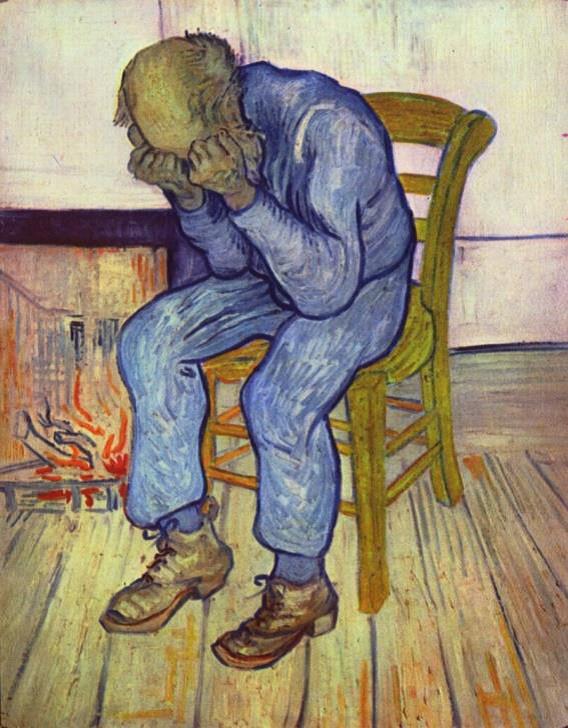
Eternity’s Gate,
by Vincent Van Gogh (1890)
God created us to love and be loved by him in a relationship so intimate that God breathes into Adam his own “breath of life.” This is more than biological; it’s what makes Adam a “living soul,” different from everything else God has created (see Genesis 2:7). When Adam and Eve eat of the tree, it’s their sin that separates them from God, and they’re sent out of his presence to live in the world as “only human.” The joy of the gospel message is that God doesn’t leave us flawed and broken, but sends his own son, Jesus Christ, to reconcile us and show us what it means to live as fully human.
Though Jesus is fully God, he suffered in all the same ways we do, except for sin; pain, fatigue, hunger, thirst, which all present opportunities for temptation, just as they do for us. What makes him fully human is that he offers it all to God the Father and the Holy Spirit makes up the difference. God isn’t glorified when our lives look the same as everyone else’s, and so Jesus calls us to a radical love of God and our neighbor that points to something greater at work. We have a perfect example in Acts 3, where a lame man asks Peter and John for alms. Instead of replying that he didn’t have any cash (like I’ve done so many times), Peter replies,
“I have no silver and gold, but I give you what I have; in the name of Jesus Christ of Nazareth, walk,” and the man leaps to his feet!
God doesn’t want us to be burdened by our imperfections, but he also wants us to know that they don’t define who we are – “only human.” Jesus shows us that our limits are opportunities for God to share his life with us – we hunger so that he can feed us, we question so that he can teach us. Jesus himself even dies so that when we die we can have new life in him. God tells St. Paul, “My power is made perfect in weakness” (see 2 Corinthians 12:9), so don’t let any struggle or failure keep you from running to God – those are the places in your life he’s longing to enter.
Father McQueen
Readings for this Sunday - The Seventh Sunday after The Epiphany
Leviticus 19:1-2, 9-18 Psalm 71:16-24
1 Corinthians 3:10-11, 16-23
Matthew 5: 38-48
|
RETURN TO TOP
This Sunday and Beyond - February 12th, 2017
Get it in PDF form with calendar
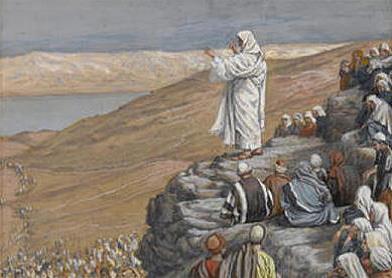 Any time we go out into the world we have to constantly make decisions on how to interact with the people around us. While the way we treat people should honor the equal dignity we all share, the level of relationship determines what that looks like. For example, the best way I can honor the dignity of other drivers is to obey all the traffic laws and be as considerate as possible. I can’t comfort them on the loss of a loved one the way I can a co-worker. I’m not able to try and help a co-worker reconcile the dynamics in their families like I could with my sisters. The list of people that give me full access to the movements and motivations of their hearts is probably limited to my wife and our children, the people that I have the most intimate connection to.
Any time we go out into the world we have to constantly make decisions on how to interact with the people around us. While the way we treat people should honor the equal dignity we all share, the level of relationship determines what that looks like. For example, the best way I can honor the dignity of other drivers is to obey all the traffic laws and be as considerate as possible. I can’t comfort them on the loss of a loved one the way I can a co-worker. I’m not able to try and help a co-worker reconcile the dynamics in their families like I could with my sisters. The list of people that give me full access to the movements and motivations of their hearts is probably limited to my wife and our children, the people that I have the most intimate connection to.
I think that’s a helpful context for understanding what Jesus is saying to the people in his Sermon on the Mount. It’s fine for a king to tell his subjects how to behave, but he doesn’t have access to our inner thoughts, feelings, or desires. Jesus is telling us that the relationship is changing – no longer will we be subjects in the kingdom, but children of the Father through union with the Son. If we don’t get that, it just sounds like God will be more exacting in judging us, when in reality what he wants is to be more generous in loving us.
Keeping in mind the context of parents and children (though this is true of all relationships), there’s a danger that comes from wanting something good for someone more than they want it for themselves. If you’re not careful you can begin doing things for them that they should be doing for themselves, and instead of empowering them, you make them dependent and entitled. Jesus is telling us that while God wants to deepen our relationship to give us his own heart, we have to give
him full access to our whole heart in turn. Our outward behavior isn’t enough anymore and so Jesus takes us deeper to show us what stands in the way of receiving all the love that God has for us.
Finally, don’t let Jesus’ deepening of the law discourage you, and don’t be afraid to really explore what in your heart needs work. Kings might demand perfect obedience, but a father’s role is to be present through all the messiness and struggle of growing and maturing. God doesn’t wait to begin sharing his divine life with us, so don’t wait to begin sharing your life with him; open your heart to him so that you begin to experience how open his heart is to you.
Father McQueen
Readings for this Sunday - The Sixth Sunday after The Epiphany
Ecclesiasticus 15:11-20 Psalm 119:9-16 1 Corinthians 3:1-9
Matthew 5: 21-25, 27-30, 33-37
|
RETURN TO TOP
This Sunday and Beyond - February 5th, 2017
Get it in PDF form with calendar
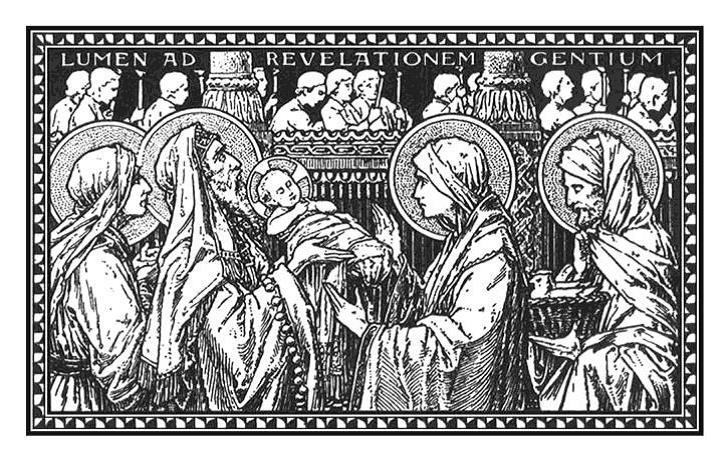 This coming Sunday we’ll be celebrating one of the high feasts of the Church year, the Presentation of Our Lord in the Temple. The gospel lesson (Luke 2:22-40) recounts the Blessed Mother and St. Joseph taking Jesus to the Temple to make the offering required by the law of Moses. They encounter Simeon and Anna, two devout Jews who by the power of the Holy Spirit recognize Jesus as the Messiah and prophesy about the work he will do.
This coming Sunday we’ll be celebrating one of the high feasts of the Church year, the Presentation of Our Lord in the Temple. The gospel lesson (Luke 2:22-40) recounts the Blessed Mother and St. Joseph taking Jesus to the Temple to make the offering required by the law of Moses. They encounter Simeon and Anna, two devout Jews who by the power of the Holy Spirit recognize Jesus as the Messiah and prophesy about the work he will do.
The feast is also known as “Candlemass” because of the ritual rooted in the day’s gospel that traditionally accompanies its celebration. This carries special significance for Fr. Tony Noble, our guest celebrant and preacher, who was ordained priest on this feast, and so we also asked him to offer a reflection on it for our upcoming newsletter. In describing the ceremony, Fr. Tony writes, “One of the joys of being an Anglocatholic parish is that we get to celebrate traditions that are both unique and beautiful. Candlemass is one of them. Some people think that being Anglocatholic means incense, processions, traditional music and statues of Our Lady. It is far more than this. Indeed, these things are common throughout the Episcopal Church & Anglican Communion. For Anglocatholics it is more than just nice worship – it is what the traditions symbolize and the teachings they impart.”
The Holy Spirit had revealed to Simeon that he would see Israel’s redeemer before he died, so when the Holy Family enters he exclaims, “Lord now lettest Thou thy servant depart in peace.” This begins the Nunc Dimittis (Latin for “now dismiss”), which the Church has used as a song of praise in its worship since at least the 4th century. Fr. Tony writes, “The Candlemass ceremonies are based on this canticle - and particularly the line: ‘to be a light to lighten the Gentiles.’ So the congregation receives candles when they enter the church. These candles are lit whilst the choir
sings the Nunc Dimittis. They are the blessed with an appropriate collect. A procession follows, imitating that first procession of Our Lord into the Temple.”
The Nunc Dimittis resonated with the earliest of Christians and has inspired one of the Church’s most beautiful traditions because we all share something of Simeon’s experience. There are times in our lives – instability in our families, sickness, uncertainty at work – that cause us to ache more deeply as we wait for God’s kingdom to come. At other times we’re able to rejoice in seeing the gospel at work in our lives – freedom, reconciliation with Him and our neighbors, an abiding in His love. No matter the circumstances, Simeon’s encounter with Jesus is a sign of hope for us – that the Messiah has come, and that through him, God will make good on all His promises.
Father McQueen
Readings for this Sunday - The Presentation of Our Lord in the Temple
Malachi 3:1-4 Psalm 24:7-10 Hebrews 2:14-18 Luke 2L22-40
|
RETURN TO TOP
This Sunday and Beyond - January 29th, 2017
Get it in PDF form with calendar
 I did some research to help with my reflection this week. Most of you will be very familiar with Ivory Soap. It’s been around for a long time, and it’s known for being pure. It’s one of Proctor and Gamble’s oldest and most successful products, first produced in 1879. P&G wanted to find a new way to market their soap, and they turned to science. A laboratory found that Ivory Soap’s ingredients are 99 and 44/100% pure. That means that it consisted of fatty acids and alkali with only the tiniest amounts of other ingredients. It was the purest of the pure.
I did some research to help with my reflection this week. Most of you will be very familiar with Ivory Soap. It’s been around for a long time, and it’s known for being pure. It’s one of Proctor and Gamble’s oldest and most successful products, first produced in 1879. P&G wanted to find a new way to market their soap, and they turned to science. A laboratory found that Ivory Soap’s ingredients are 99 and 44/100% pure. That means that it consisted of fatty acids and alkali with only the tiniest amounts of other ingredients. It was the purest of the pure.
The 99 44/100% pure became the basis for their ad campaign in the 1890’s, helping Ivory “clean up” in soap sales. There was one other factor they could use for big sales: Ivory Soap floats! It was the first soap to float in the bathtub because of air bubbles trapped inside the product. It may have started as an accident, but suddenly there were calls all over the country for the soap that floats! Some ideas just take off.
I thought of this because of the Beatitudes, the foundation for the Sermon on the Mount in Matthew 5. I’ve reflected on these verses many times, there’s so much there that it’s hard to appreciate them in only one sermon. So, I focused on “Blessed are the pure in heart, for they will see God,” (v. 8). Of the eight Beatitudes, this one has always meant the most to me.
There’s something moving about reflecting on a pure heart. It’s almost as if all the other Beatitudes emerge from the image of a heart that is clean and open to the presence and love of God. To be able to see God, to know Him and be in his favor is blessed indeed.
I’ve been lucky enough to know a few people that immediately radiant this presence and purity. Most have been lay people and members of my parish, and a couple have even been clergy! To be with them, to be open to their spirit, has enabled me to see God in a new way. There was something so clean and pure about them, it was transcendent.
They have helped me to want to be a better person. They’ve helped me understand the Beatitudes. I’ve wanted to be more humble, more merciful and peaceful. They’ve helped me when I’ve been called on to mourn with others, feel empathy and
generosity beyond my normal means. To care for those who feel persecuted in life, those who travel a hard road and feel the dust in their face daily. I hope I can open my heart to them, understand their path, and give of myself generously.
These things come from the pursuit of a pure heart. As Christians, we are all on the journey to the presence of God in our life. We all seek to grow closer to Him, and to know His blessing. Ivory Soap is 99 and 44/100% pure and it floats! We may not be there, but the love of God and the purity of the heart of Jesus Christ is there for us as an example and a call. We may not float, but we are raised up in Christ.
Father Steven L. Schuneman
Readings for this Sunday - Fourth Sunday after Epiphany
Micah 6:1-8 Psalm 37:1-6 1 Corinthians 1:18-31 Matthew 5:1-12
|
RETURN TO TOP
This Sunday and Beyond - January 22nd, 2017
Get it in PDF form with calendar
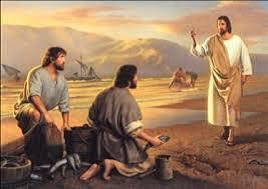 When I was about twelve my parents began looking for a place to vacation on the weekends. We looked for several months for a place we could place our forty foot trailer and leave it. Finally, we found a place on the Mississippi River in Sabula, Iowa. It would have a beautiful view of the river and all the boats that floated past. But, fishing was very important, and there was a nearby lake within walking distance.
When I was about twelve my parents began looking for a place to vacation on the weekends. We looked for several months for a place we could place our forty foot trailer and leave it. Finally, we found a place on the Mississippi River in Sabula, Iowa. It would have a beautiful view of the river and all the boats that floated past. But, fishing was very important, and there was a nearby lake within walking distance.
But, would the fishing be any good? Yes! In fact, the day we visited the fish were really biting. It was easy to catch a small sunfish or bluegill, in fact it was hard not to. I remember trying to pull in my line without a fish on it. It didn’t happen. Many of them were tiny minnows really, but we were ecstatic! This is the place to be, the best fishing in the world.
But, the fishing was never like that again. It would never be easy to catch a fish, they’d be as elusive as we’d come to expect. Truthfully, I think we hit it the day after they’d stocked the lake full of young swimmers. But, it didn’t matter, we were there to stay. They had us hook, line and sinker.
Jesus walks along the Sea of Galilee and meets brothers Simon and Andrew fishing with two other brothers, James and John. Matthew does not tell us of the miracle catch that comes from dropping their nets on the other side of the boat. This story is much simpler, Jesus simply calls them. “Follow me, and I will make you fish for people” (4:19).
We don’t know what it is about Jesus that “reels them in.” But, there is something about our Lord that causes them to drop everything and follow Jesus, for the rest of their lives. It wasn’t little fish on a hook or in a net. I always imagine that there was something transcendent about Jesus. Something undefined that has a spark of the divine that people could sense at once. There doesn’t seem to be any discussion, the disciples just go because they just know. They know that Jesus is the One.
They become disciples of Jesus, and fishers for people. On that day, they walked away easily and followed Jesus. But, it would not be easy for them ever again. Being a disciple would not be easy, proclaiming the gospel would not be trouble free. No days of ‘fish’ jumping in their boats or grabbing their lines with abandon. They would suffer persecution and death for the faith they proclaimed. Only John would die in exile on the island of Patmos.
It’s not easy to be a disciple of Jesus, it comes with commitment and sacrifice. Sharing the Good News of God in Jesus Christ is often difficult, but even more often rewarding. When we read of Jesus calling his disciples, it’s easy to place ourselves in that boat with Simon and Andrew, and we should. The gospel stories we read took place two thousand years ago, but they are meant to speak to us today. I invite you to put down your old nets, and take up new ones for there are so many longing to hear of God’s love and glory.
Father Steven L. Schuneman
Readings for this Sunday - Third Sunday after Epiphany
Amos 3:1-8 Psalm 139:1-11 1 Corinthians 1:10-17 Matthew 4:12-23
|
RETURN TO TOP
This Sunday and Beyond - January 15th, 2017
Get it in PDF form with calendar
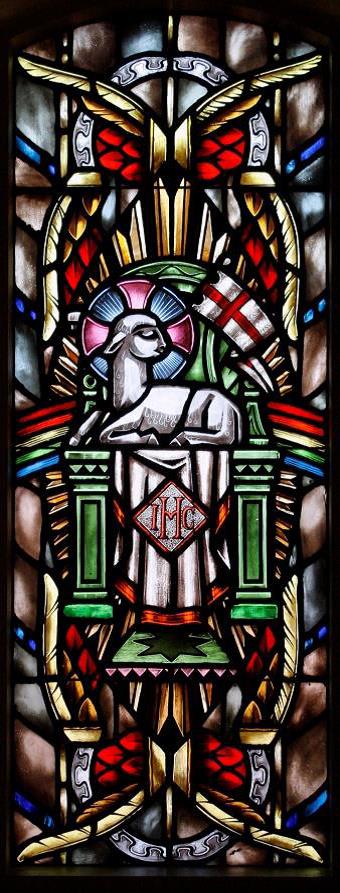 I have so many memories of worship as a child. I grew up as an Episcopalian, attending Grace Church, Sterling IL. It gave me a great foundation as a Christian as well. I found the symbols of the church to be fascinating, especially the stained glassed windows, crosses and images. I thought the statue of Our Lady of Walsingham was especially beautiful.
I have so many memories of worship as a child. I grew up as an Episcopalian, attending Grace Church, Sterling IL. It gave me a great foundation as a Christian as well. I found the symbols of the church to be fascinating, especially the stained glassed windows, crosses and images. I thought the statue of Our Lady of Walsingham was especially beautiful.
But, today I’m reminded of the green brocade frontal with the embroidered Lamb of God. Because of the worship season, the green frontal was on the altar for over half the year. I got a lot of opportunity to admire it and reflect on it. I remember thinking about what it means for Jesus to be the Lamb of God, and why it was perfect for the altar.
In today’s gospel, John the Baptist looks to Jesus and says, “Behold, the Lamb of God, who takes away the sins of the world!” (John 1:29). We only find this in John’s Gospel, but it is an important declaration of faith and understanding. It’s interesting that John says this on two occasions and Andrew and another disciple go follow Jesus.
It is for them an actual ‘turning point,’ because they turn from following John to following Jesus. John had told his disciples that Jesus ranked ahead of him, and the Holy Spirit was present at his baptism. “And I myself have seen and have testified that this is the Son of God,” (1:34).
Son of God and Lamb of God, both are powerful statements of identity. It takes me back to the beautiful frontal that caught my eye. There will always be something gentle and peaceful about a lamb. I smile just thinking about them, but there is so much more than that. Jesus is not a lamb in a petting zoo, but the Son of God who gave himself for us.
It is sacrifice that makes Jesus the Lamb of God. Anyone who heard John speak must have immediately thought of the lamb offering of the Passover. A central image of faith for Israel, the blood and sacrifice of the lamb stands as a reminder of the salvation of Israel from bondage in Egypt. The blood of the lamb, brushed over
the door of the household meant that God ‘passed over’ that family. They would live to rise up in freedom.
So, to call Jesus the Lamb of God means that he is the Chosen One who will offer his life as a sacrifice for us. Later, the Baptist will say, “he must increase and I must decrease,” (3:30). That is so, but both John and Jesus face persecution and death. John’s death at the hands of foolish Herod is a precursor of Jesus’ death for us all.
And yet they follow him. Indeed, Andrew finds his brother Simon and brings him to Jesus. “Come and see” (1:39) are words of invitation to the disciples and to us. We are followers of the Lamb of God, and his sacrifice calls us to a sacrifice and offering of ourselves. I love to sing, “O, Lamb of God,” but when I do I should remember that the Lamb invites his people to a life of sacrifice and service. We do not know where this will lead us, but we can have confidence in the one we follow.
Father Steven L. Schuneman
Readings for this Sunday - Second Sunday after Epiphany
Isaiah 49:1-7 Psalm 40:1-10 1 Corinthians 1:1-9 John 1:29-41
|
RETURN TO TOP
This Sunday and Beyond - January 8th, 2017
Get it in PDF form with calendar
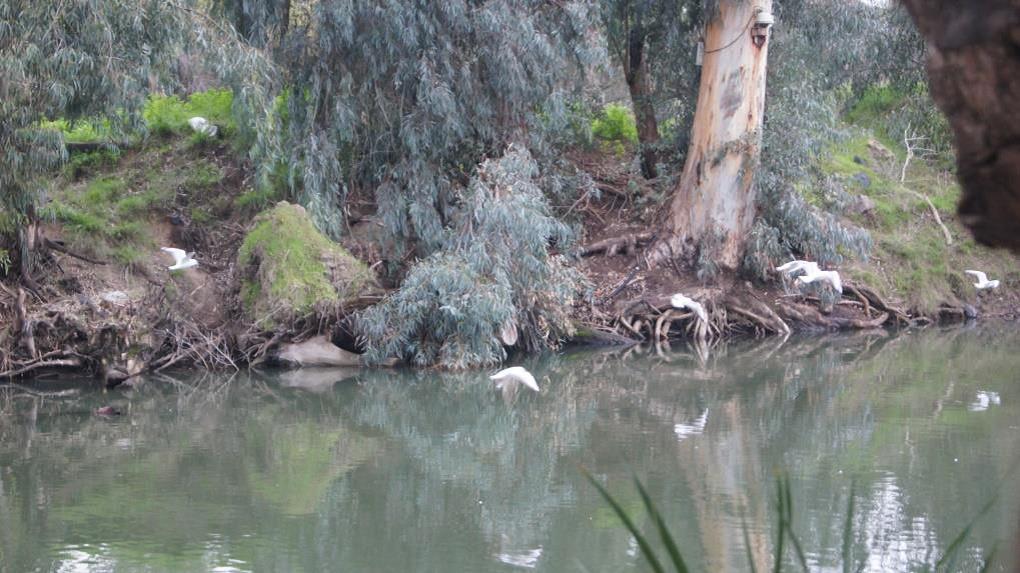
The site on the Jordan river where Jesus was baptized
Photo by The Rev. Steven L. Schuneman
And when Jesus had been baptized, just as he came up from the water, suddenly the heavens were opened to him and he saw the Spirit of God descending like a dove and alighting on him. And a voice from heaven said, “This is my Son, the Beloved, with whom I am well pleased.†(Matthew 3:16-17)
The Feast of the Baptism of Jesus is kept on the Sunday following the Epiphany, January 6. This is because the baptism is a powerful sign of the epiphany, the revealing of Jesus and his identity as God’s beloved Son. It is one of my favorite Sundays because it highlights the importance of Jesus’ baptism and our own. The 1979 Book of Common Prayer greatly revised the service of baptism to reflect the connection between baptism and ministry, and incorporation into the Body of Christ. As I like to say, baptism is not something to get done, but it is something that has begun.
In 2011, I was so blessed to visit the Holy Land, seeing the place where Jesus walked and our faith was born. There were so many highlights on my two week tour, but seeing the traditional site of Jesus’ baptism was especially moving. It is a place filled with vegetation and life, birds flying everywhere, and water streaming abundantly. Hundreds of people travel there every day to experience the place where Jesus was baptized.
Jesus’ baptism is important for many reasons. John didn’t want to baptize Jesus, he felt most unworthy in his presence. But, Jesus insisted, saying it was “to fulfill all righteousness.†(Matt. 3:15) Jesus’ baptism and our own unites us together in a spiritual bond that is never broken. We are His, and we are the Body of Christ.
That is why we believe in one baptism, not to be repeated, because it need not. Once is for all.
At the place of Jesus’ baptism, we renewed our baptismal vows according to the Prayer Book. We stood in the water, as high as we were willing to go. Cold, clear water that caused us all to smile with each other and sing songs of God’s praise. My thanks to Bishop Edward L. Little (Northern Indiana) for leading us.
It was a moving time, but something was missing. Renewing our vows just wasn’t enough for me. That’s when we noticed about a dozen adults, dressed in white garments, entering the water to be submerged and baptized. We immediately joined them and celebrated their new life in Christ. Their smiles and laughter meant everything to me.
I came away with a renewed sense of what it means to be baptized. I remember this every time I celebrate the Feast of the Baptism of Jesus. “This is my child, my beloved, with whom I am well pleased.â€
Father Steven L. Schuneman
Readings for this Sunday:
The Baptism of Our Lord
Isaiah 42:1-9 Psalm 89:20-29 Acts 10:34-38 Matthew 3:13-17
|
RETURN TO TOP
This Sunday and Beyond - January 1st, 2017
Get it in PDF form with calendar
 As a young child I remember being suspicious of the expression, “It’s better to give than to receive,†because I think part of me was concerned that I was being prepared not to get much for Christmas. Of course, as my understanding of Christmas has matured, not only have my suspicions faded, I’ve been blessed to experience that it’s actually true. In his letter to the Philippians, Paul is showing us that growing up in the faith means setting aside the suspicion that we can’t live our whole lives that way.
As a young child I remember being suspicious of the expression, “It’s better to give than to receive,†because I think part of me was concerned that I was being prepared not to get much for Christmas. Of course, as my understanding of Christmas has matured, not only have my suspicions faded, I’ve been blessed to experience that it’s actually true. In his letter to the Philippians, Paul is showing us that growing up in the faith means setting aside the suspicion that we can’t live our whole lives that way.
The primary theme of the letter is holiness or “Christ-mindedness,†that is, seeing the world the way Jesus does, and in this Sunday’s passage we see the essence of that. By “emptying himself,†the message Jesus gives is that our lives are not about us, and that our life increases in the measure we give it away. Naturally, this is a message that concerns us, perhaps because we think that it means that we’re not going to get much, but through his personal witness, Paul tells us the opposite is true.
Just in this letter, it’s clear that Paul’s life has not been diminished in the least by his giving it away. He tells the Philippians not to be upset by his imprisonment, because it’s advanced the gospel and encouraged others. He’s ambivalent about living and dying because to live is Jesus and to die is more Jesus (1:21), and he counts everything else as garbage (3:8). Then (and remember, he’s writing from death row), he tells them to rejoice always (4:4) and not to have any anxiety about anything (4:6)! How is any of that possible? It’s the peace of God, which passes all understanding (4:7).
If we’re still suspicious, thinking that this is way beyond us – it is, but Paul encourages us to be confident anyway because it’s God who started the good work
and God who will finish it (1:6). We can do our part by turning our lives into a gift. Start developing small, habitual ways of responding to life, like praying for the people who frustrate or inconvenience you or thanking God for the things that keep you from having your own way. Look for opportunities to serve or go last. The more we give ourselves to God and our neighbors, the more we’ll experience the blessing of having more to give.
Father McQueen
Readings for this Sunday:
Feast of the Most Holy Name of Jesus
Numbers 6:22-27 Psalm 8 Philippians 2:5-11 Luke 2:15-21
|
RETURN TO TOP
|


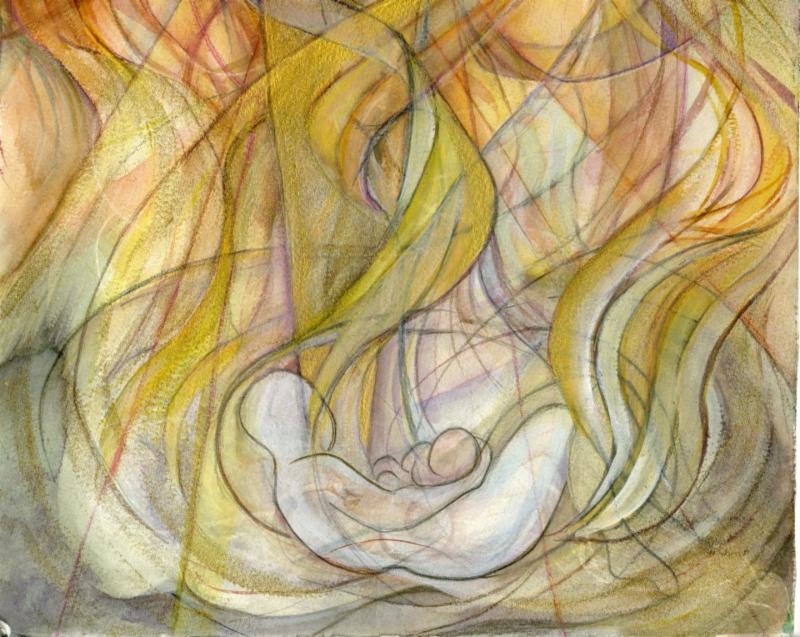
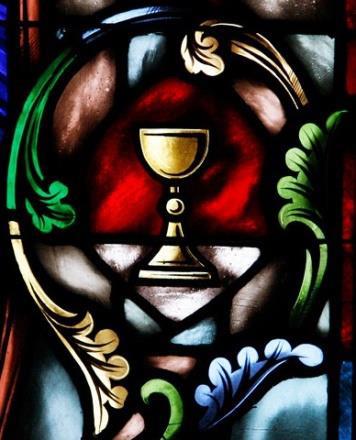

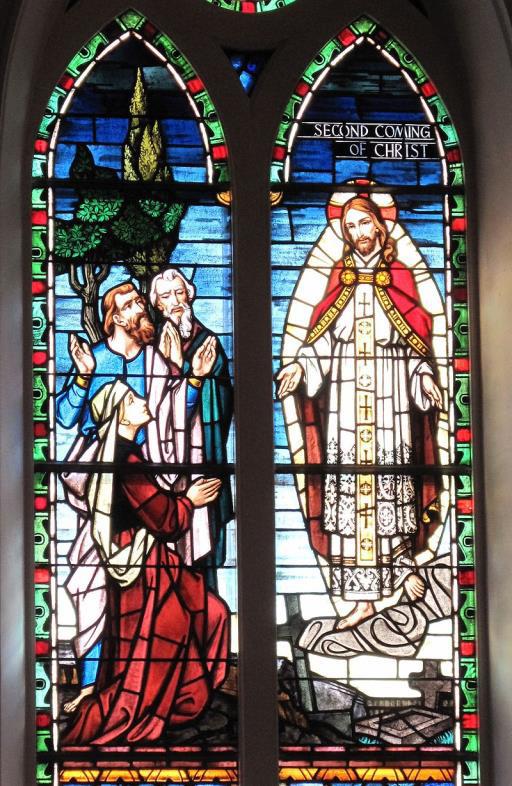
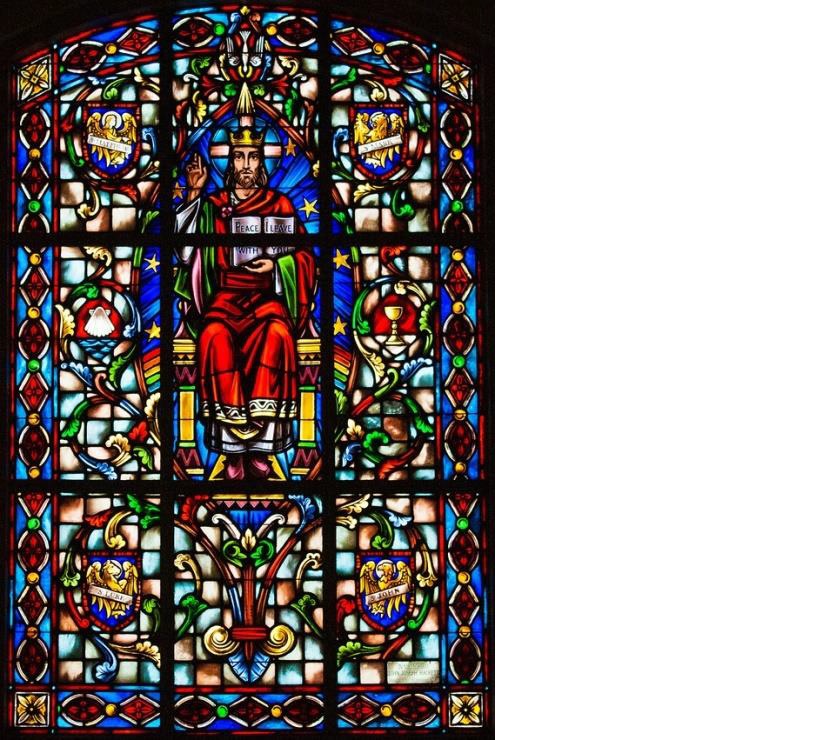

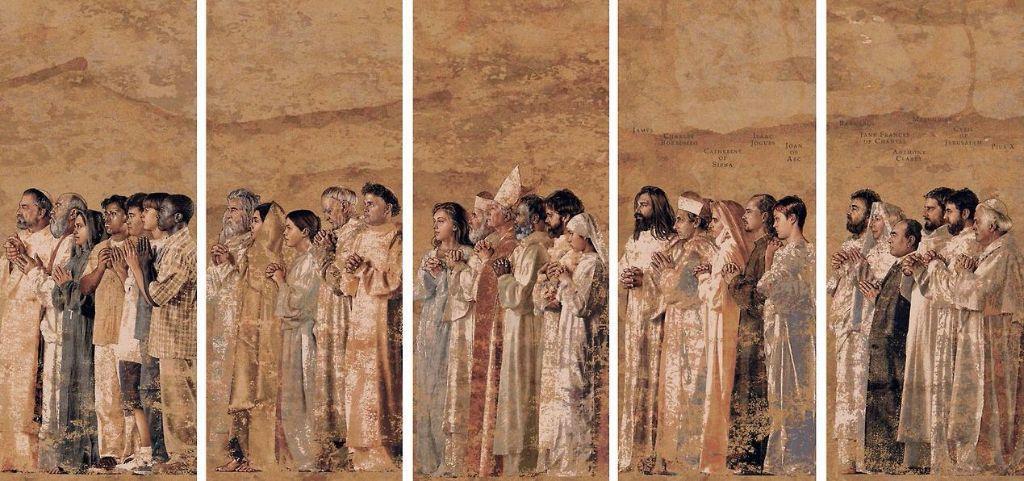

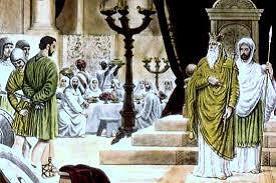
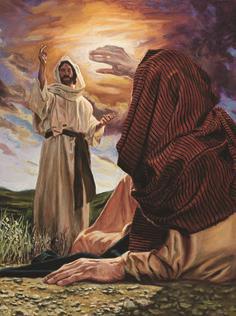
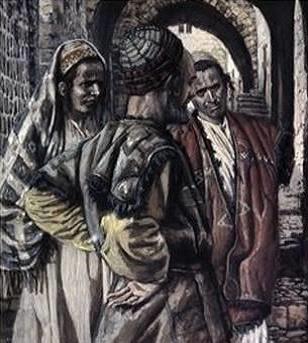
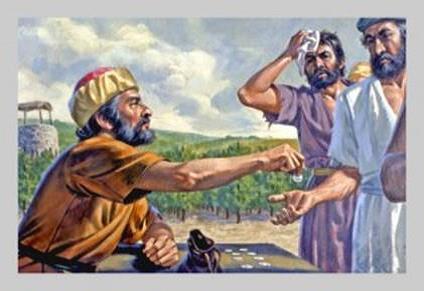



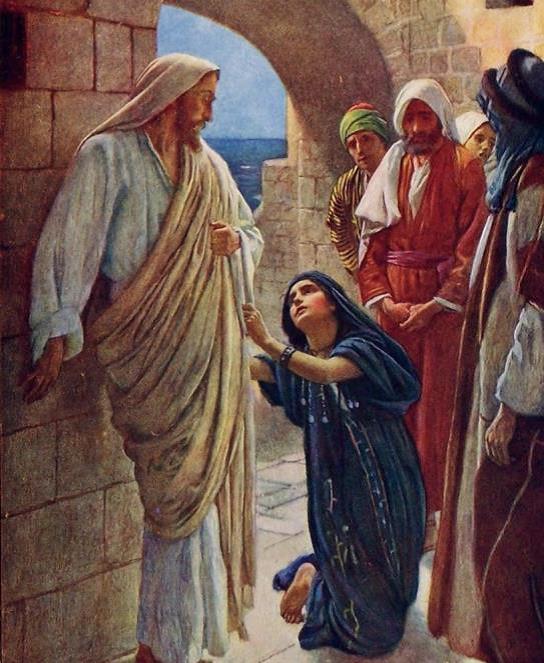
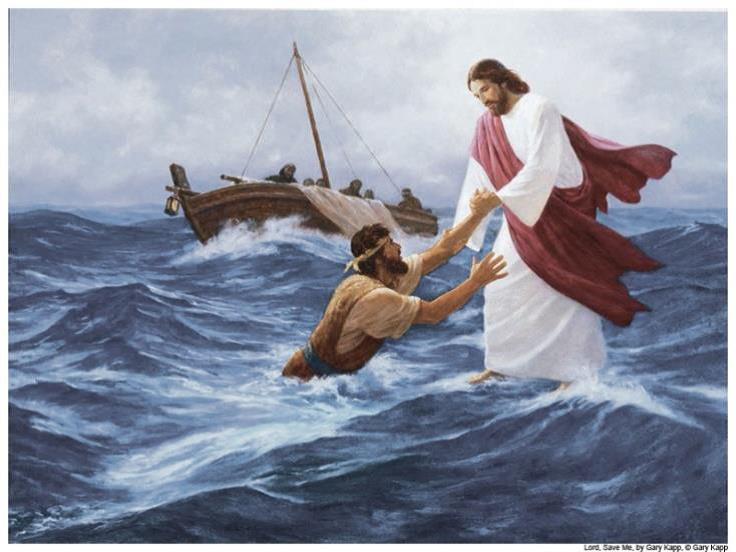

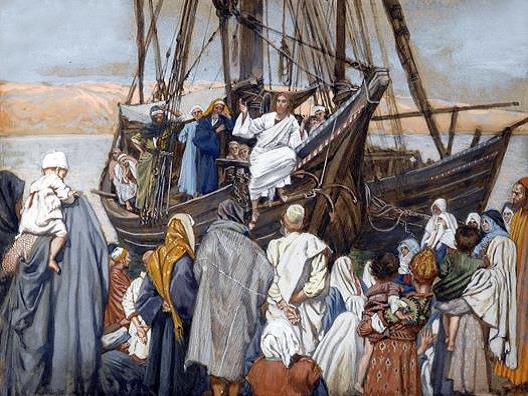


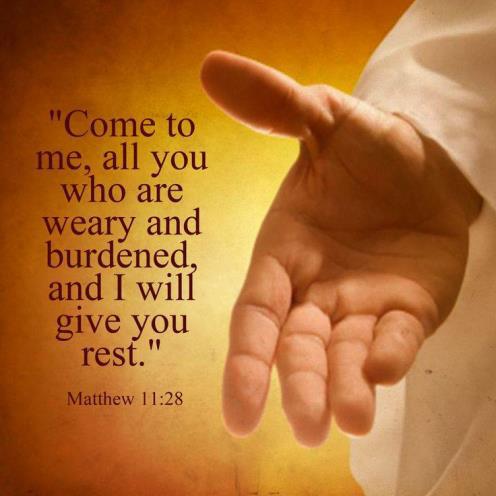

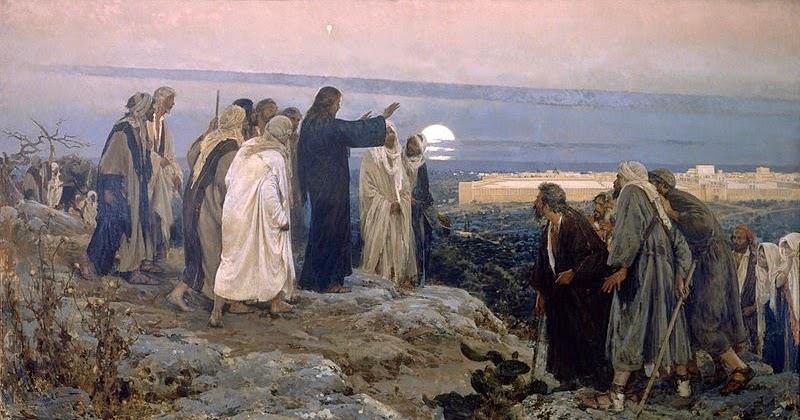



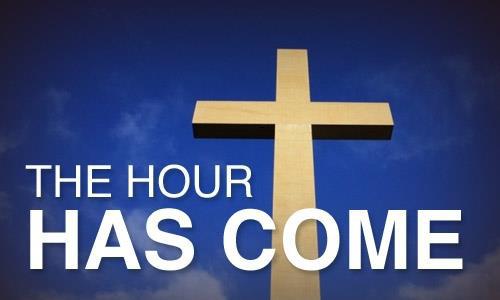



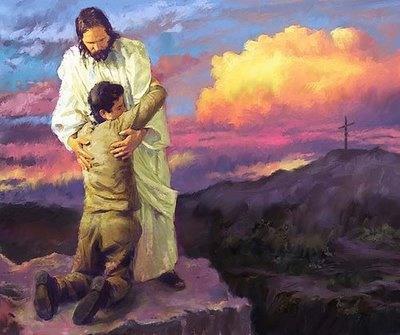

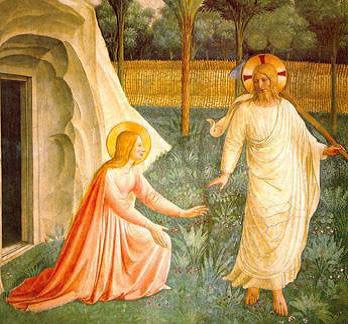
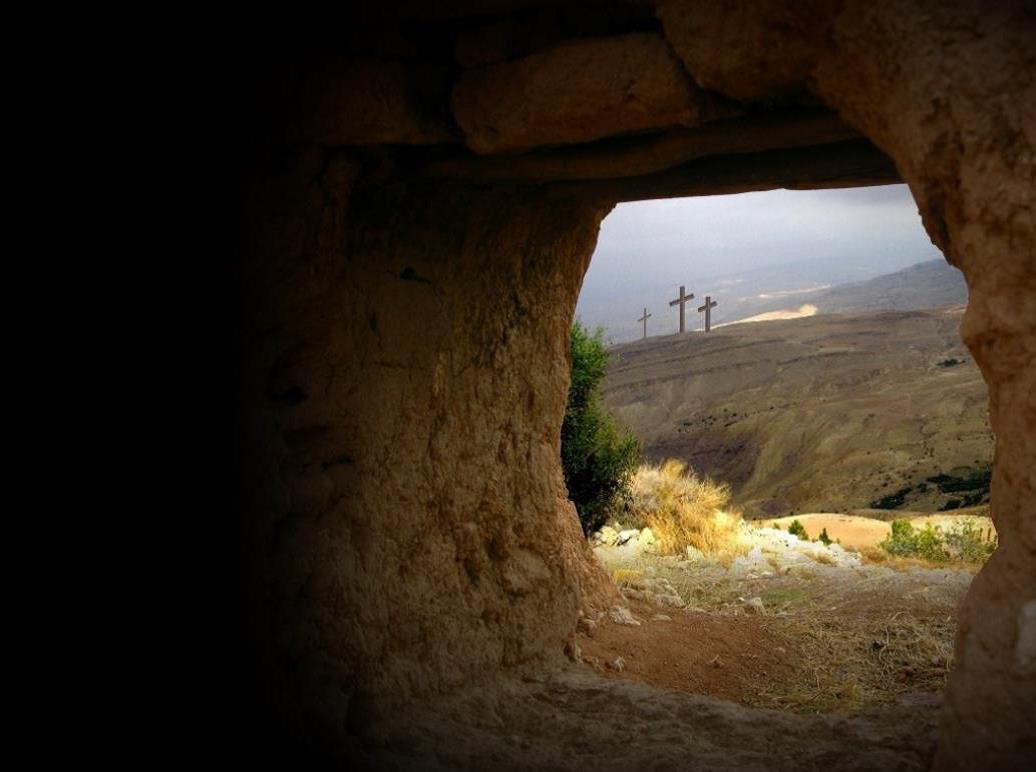
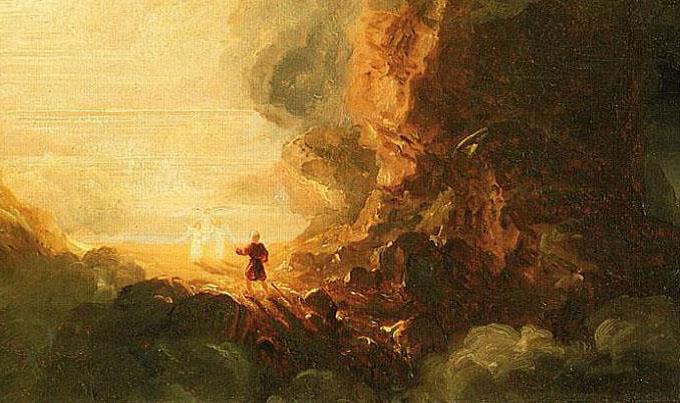

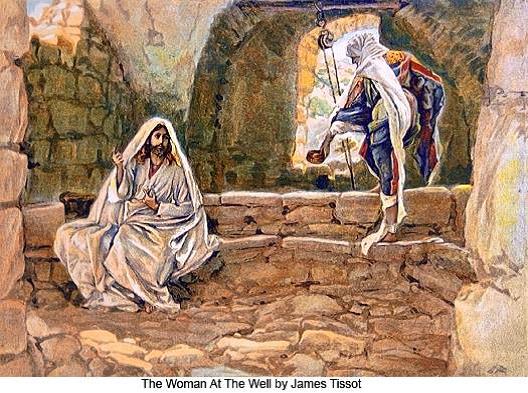

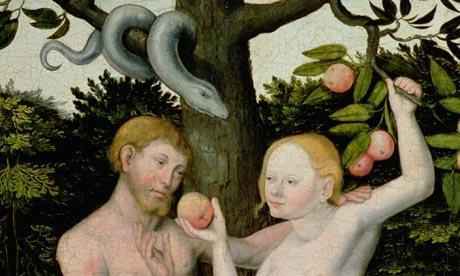


 Any time we go out into the world we have to constantly make decisions on how to interact with the people around us. While the way we treat people should honor the equal dignity we all share, the level of relationship determines what that looks like. For example, the best way I can honor the dignity of other drivers is to obey all the traffic laws and be as considerate as possible. I can’t comfort them on the loss of a loved one the way I can a co-worker. I’m not able to try and help a co-worker reconcile the dynamics in their families like I could with my sisters. The list of people that give me full access to the movements and motivations of their hearts is probably limited to my wife and our children, the people that I have the most intimate connection to.
Any time we go out into the world we have to constantly make decisions on how to interact with the people around us. While the way we treat people should honor the equal dignity we all share, the level of relationship determines what that looks like. For example, the best way I can honor the dignity of other drivers is to obey all the traffic laws and be as considerate as possible. I can’t comfort them on the loss of a loved one the way I can a co-worker. I’m not able to try and help a co-worker reconcile the dynamics in their families like I could with my sisters. The list of people that give me full access to the movements and motivations of their hearts is probably limited to my wife and our children, the people that I have the most intimate connection to. This coming Sunday we’ll be celebrating one of the high feasts of the Church year, the Presentation of Our Lord in the Temple. The gospel lesson (Luke 2:22-40) recounts the Blessed Mother and St. Joseph taking Jesus to the Temple to make the offering required by the law of Moses. They encounter Simeon and Anna, two devout Jews who by the power of the Holy Spirit recognize Jesus as the Messiah and prophesy about the work he will do.
This coming Sunday we’ll be celebrating one of the high feasts of the Church year, the Presentation of Our Lord in the Temple. The gospel lesson (Luke 2:22-40) recounts the Blessed Mother and St. Joseph taking Jesus to the Temple to make the offering required by the law of Moses. They encounter Simeon and Anna, two devout Jews who by the power of the Holy Spirit recognize Jesus as the Messiah and prophesy about the work he will do. I did some research to help with my reflection this week. Most of you will be very familiar with Ivory Soap. It’s been around for a long time, and it’s known for being pure. It’s one of Proctor and Gamble’s oldest and most successful products, first produced in 1879. P&G wanted to find a new way to market their soap, and they turned to science. A laboratory found that Ivory Soap’s ingredients are 99 and 44/100% pure. That means that it consisted of fatty acids and alkali with only the tiniest amounts of other ingredients. It was the purest of the pure.
I did some research to help with my reflection this week. Most of you will be very familiar with Ivory Soap. It’s been around for a long time, and it’s known for being pure. It’s one of Proctor and Gamble’s oldest and most successful products, first produced in 1879. P&G wanted to find a new way to market their soap, and they turned to science. A laboratory found that Ivory Soap’s ingredients are 99 and 44/100% pure. That means that it consisted of fatty acids and alkali with only the tiniest amounts of other ingredients. It was the purest of the pure. When I was about twelve my parents began looking for a place to vacation on the weekends. We looked for several months for a place we could place our forty foot trailer and leave it. Finally, we found a place on the Mississippi River in Sabula, Iowa. It would have a beautiful view of the river and all the boats that floated past. But, fishing was very important, and there was a nearby lake within walking distance.
When I was about twelve my parents began looking for a place to vacation on the weekends. We looked for several months for a place we could place our forty foot trailer and leave it. Finally, we found a place on the Mississippi River in Sabula, Iowa. It would have a beautiful view of the river and all the boats that floated past. But, fishing was very important, and there was a nearby lake within walking distance. I have so many memories of worship as a child. I grew up as an Episcopalian, attending Grace Church, Sterling IL. It gave me a great foundation as a Christian as well. I found the symbols of the church to be fascinating, especially the stained glassed windows, crosses and images. I thought the statue of Our Lady of Walsingham was especially beautiful.
I have so many memories of worship as a child. I grew up as an Episcopalian, attending Grace Church, Sterling IL. It gave me a great foundation as a Christian as well. I found the symbols of the church to be fascinating, especially the stained glassed windows, crosses and images. I thought the statue of Our Lady of Walsingham was especially beautiful.
 As a young child I remember being suspicious of the expression, “It’s better to give than to receive,†because I think part of me was concerned that I was being prepared not to get much for Christmas. Of course, as my understanding of Christmas has matured, not only have my suspicions faded, I’ve been blessed to experience that it’s actually true. In his letter to the Philippians, Paul is showing us that growing up in the faith means setting aside the suspicion that we can’t live our whole lives that way.
As a young child I remember being suspicious of the expression, “It’s better to give than to receive,†because I think part of me was concerned that I was being prepared not to get much for Christmas. Of course, as my understanding of Christmas has matured, not only have my suspicions faded, I’ve been blessed to experience that it’s actually true. In his letter to the Philippians, Paul is showing us that growing up in the faith means setting aside the suspicion that we can’t live our whole lives that way.